- How it works

How to Write a Summative Essay – Guide with Example
Published by Jamie Walker at March 18th, 2022 , Revised On October 9, 2023
Summative essays are formal assessments or tests developed to compare and evaluate students and assess their aptitude as compared to other students. Summative essays are used to test the results of learning and knowledge over time and are usually criterion-referenced.
A summative essay is a comprehensive piece of writing and will need quite a lot of class time to revise, complete, instruct, edit and draft. This is not a type of assignment that can be revised or improved by students after grading.
The complexity and length of the summative essay will vary depending upon the academic level of the students. Students must comprehend the style and purpose of the assignment to write an effective summative essay.
The summative essay is usually longer than 5 pages. One page comprises of introduction and the rest of the pages have arguments that support the topic. Like other essay types , it ends with a conclusion and a list of references.
Also read: How to write an academic essay
Types of Summative Writing
Different types of summative writing have unique requirements which must be carefully checked for comprehension before starting the summative assessment. Adequate time must be allocated for clearly comprehending the requirements of the summative writing, drafting, reading, editing, and revising before submitting it for checking or grading.
Here are the six key main types of summative essays
Information/Explanatory
This type of writing is a common choice in most social science curriculums. It is mainly the collection of the main points, key ideas, and domain-specific theocratic ideas taught inside of the unit plan.
Even though the opinions and persuasive arguments are sometimes used interchangeably, they are different from each other. An opinion simply requires you to state your thinking and back it up with facts and logic. Students in this type of writing are expected to show steady improvement throughout their degree programme, so their teachers could evaluate them for grading. Opinion writing is introduced to students in the 5th grade.
Argumentative
Argumentative type of writing needs the establishment and development of a claim made by the student in the introduction which is supported by the details containing resources and information in the main essay body . On the other hand, the opposing claim is used to present the exact opposite and contrasting point of view with supporting evidence.
Also read: How to write an argumentative essay
Compare & Contrast
This type of comparison writing attributes itself to the themes and backgrounds that have various aspects to them including individual personalities and specific geographic locations. The compare and contrast summative essays must be comprised of a set of attributes and qualities that the student can compare and contrast using text and research evidence. They do not ask the writer to prioritize one choice on the other, however, they do requires the writer to demonstrate comprehension of both and make a comparison.
The evaluative type of summative writing asks the writer to take a particular element, idea, or individual discussed during the unit and evaluate it using particular criteria. Students should take a stance on the theme and support it with text evidence and unit materials.
Theorising is a form of writing that gives answers to questions such as “What if?”. A theory is put forth on a particular theme that reflects reality or contrast to reality. The writer is expected to take an event, era or an individual.
Elements of a Good Summative Essay
If you want to write an effective summative essay, the following are the elements that you should consider:
Reliability: The writing delivers alike results throughout settings of classrooms, daily conditions and student groups.
Validity: The writing appropriately reflects what has been taught to students in the period of instruction.
Authenticity: The writing reflects a variety of skills related to the real world that are appropriate outside of the context of the classroom.
Variety: The essay reflects the usage of different words and views. Make sure to use different words and views to bring variety into the essay.
Stuck on a difficult essay? We can help!
Our Essay Writing Service Features:
- Expert UK Writers
- Plagiarism-free
- Timely Delivery
- Thorough Research
- Rigorous Quality Control

Tips to Write an Effective Summative Essay
Here are some of the tips while writing a summative essay:
- Look for authentic academic material that is relevant to your essay topic
- Develop an outline before writing an essay.
- Make sure the essay is organised in the form of good paragraphs.
- Before starting the essay, make sure that you have some knowledge about the topic. Do some reading regarding the topic, before initiating the writing.
- Lastly, proofread the essay to avoid grammatical errors
Writing a good introduction: For a good start begin your essay with an introduction . It should briefly provide the general ideas presented in the original text. The introduction should involve the author’s name, some contextual information about the author and work title. While in the paragraphs of the main body write the ideas that you have chosen while reading.
Use the rubric: Rubrics aid in setting a certain standard for the performance of a class on an assignment or test. They outline the key requirements and criteria you will be evaluated against.
Relevant to real-world: When writing a summative essay make sure that you are making it relevant to the real world.
Frequently Asked Questions
How to write a summative essay.
To write a summative essay, start with a clear thesis statement, organize your points logically, support with evidence, and conclude by summarizing key ideas. Edit and proofread for clarity and coherence. Follow the required format and citation style for a polished final draft.
You May Also Like
There’s no denying that managing projects can be one of the most rewarding yet challenging roles in any organization. From scope creep and stakeholder disengagement to poor budgeting and unrealistic deadlines, countless obstacles can throw your carefully planned project off course.
Here are the five most popular degrees in Australia based on the interest shown by the students and student bodies.
Here we have discussed the foremost problems faced by international students in the UK with a focus on what can be done to overcome them.
USEFUL LINKS
LEARNING RESOURCES

COMPANY DETAILS

- How It Works
21 Summative Assessment Examples
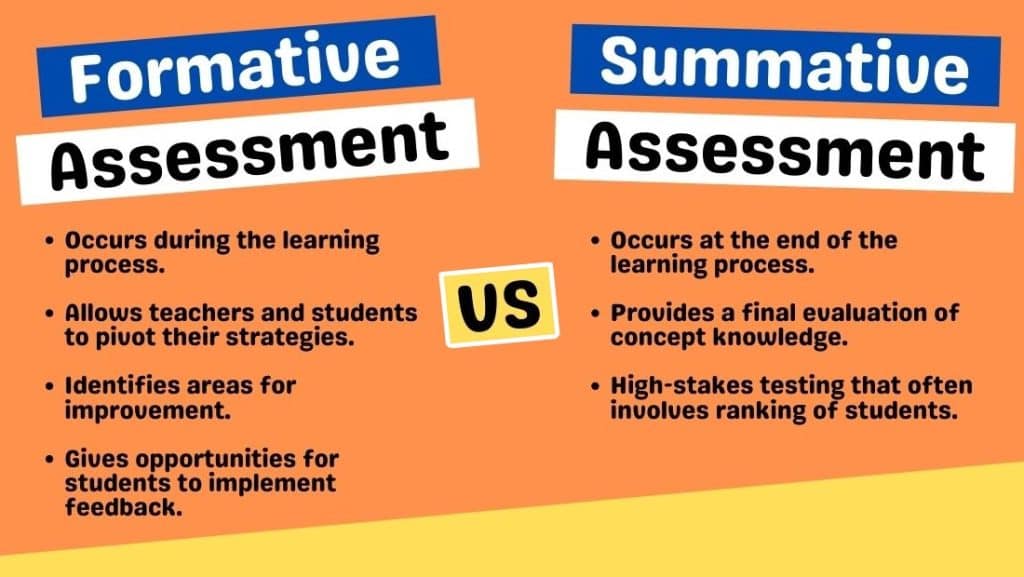
Summative assessment is a type of achievmeent assessment that occurs at the end of a unit of work. Its goal is to evaluate what students have learned or the skills they have developed. It is compared to a formative assessment that takes place in the middle of the unit of work for feedback to students and learners.
Performance is evaluated according to specific criteria, and usually result in a final grade or percentage achieved.
The scores of individual students are then compared to established benchmarks which can result in significant consequences for the student.
A traditional example of summative evaluation is a standardized test such as the SATs. The SATs help colleges determine which students should be admitted.
However, summative assessment doesn’t have to be in a paper-and-pencil format. Project-based learning, performance-based assessments, and authentic assessments can all be forms of summative assessment.
Real Life Summative Assessment Examples
- Final Exams for a College Course: At the end of the semester at university, there is usually a final exam that will determine if you pass. There are also often formative tests mid-way through the course (known in England as ICAs and the USA as midterms).
- SATs: The SATs are the primary United States college admissions tests. They are a summative assessment because they provide a final grade that can determine whether a student gets into college or not.
- AP Exams: The AP Exams take place at the end of Advanced Placement courses to also determine college readiness.
- Piano Exams: The ABRSM administers piano exams to test if a student can move up a grade (from grades 1 to 8), which demonstrates their achievements in piano proficiency.
- Sporting Competitions: A sporting competition such as a swimming race is summative because it leads to a result or ranking that cannot be reneged. However, as there will always be future competitions, they could also be treated as summative – especially if it’s not the ultimate competition in any given sport.
- Drivers License Test: A drivers license test is pass-fail, and represents the culmination of practice in driving skills.
- IELTS: Language tests like IELTS are summative assessments of a person’s ability to speak a language (in the case of IELTS, it’s English).
- Citizenship Test: Citizenship tests are pass-fail, and often high-stakes. There is no room for formative assessment here.
- Dissertation Submission: A final dissertation submission for a postgraduate degree is often sent to an external reviewer who will give it a pass-fail grade.
- CPR Course: Trainees in a 2-day first-aid and CPR course have to perform on a dummy while being observed by a licensed trainer.
- PISA Tests: The PISA test is a standardized test commissioned by the OECD to provide a final score of students’ mathematic, science, and reading literacy across the world, which leads to a league table of nations.
- The MCATs: The MCATs are tests that students conduct to see whether they can get into medical school. They require significant study and preparation before test day.
- The Bar: The Bar exam is an exam prospective lawyers must sit in order to be accepted as lawyers in their jurisdiction.
Summative Test Ideas for Classroom Teachers
Whereas the above exams represent some of the most high-profile and high-stakes summative tests , summative assessment also takes place in everyday classrooms.
Below are some common ways teachers might create a summative test for their students:
- A performance: At the end of reading a history chapter on the Spanish-American War, students write a script and perform a play that highlight the key milestones and issues involved. The teacher provides a grade that will go on their final report card.
- An infographic: Students in a nutrition course are tasked with creating an infographic that details the issue of obesity in the United States.
- A diagram: After learning about ocean animals in a biology class, students construct Venn diagrams comparing and contrasting whales and fish.
- A poster display: After one week of lessons about pollution, third graders work in pairs and make a poster display about Arctic animals and the effects of pollution.
- A slide deck demonstration: Students in an architecture course have to choose 3 architectural styles and then make a slide deck that shows examples of each and explain the differences.
- Observational testing: Kindergarten kids have to demonstrate life skills by brushing their teeth, selecting the appropriate winter clothes, and tying their shoes independently.
- Identifying errors in a program: Computer science majors are given 5 pages of programming code for 5 different apps, and must find the one error in each.
- Multiple choice exam: Students in a European history course are given a cumulative multiple-choice exam at the end of the term over all 7 chapters covered.
Summative vs Formative Assessment
Summative assessments are one of two main types of assessment. The other is formative assessment.
Whereas summative assessment occurs at the end of a unit of work, a formative assessment takes place in the middle of the unit so teachers and students can get feedback on progress and make accommodations to stay on track.
Summative assessments tend to be much higher-stakes because they reflect a final judgment about a student’s learning, skills, and knowledge:
“Passing bestows important benefits, such as receiving a high school diploma, a scholarship, or entry into college, and failure can affect a child’s future employment prospects and earning potential as an adult” (States et al, 2018, p. 3).
Five Summative Test Scenarios
1. performance-based summative assessment.
A traditional form of summative assessment usually involves a lot of multiple-choice and short essay questions. But it doesn’t have to be that way at all. Performance-based tests that involve authentic assessment can also be summative.
For example, at the end of each unit in an advanced radiology course, the instructor might provide students with 10 X-rays that show various diseases. The students have to work in pairs to identify the disease and indicate its stage of progression.
Of course, to make things interesting, the instructor also includes X-rays that don’t contain any diseases and others that are most commonly misdiagnosed by highly experienced professionals.
2. Presentation-Based Final Evaluation
In a university course in developmental psychology, the chapter on attachment styles usually sparks a lot of interest among the students. Assessing student learning through traditional paper-and-pencil tests doesn’t seem to capture the dynamic nature of the subject.
So, the professor locates some old footage from Mary Ainsworth’s original studies on the strange situations test . The videos are a bit grainy, but there is a lot of footage that show great examples of each attachment style.
To assess their understanding of each style, the students are sent home with a set of videos. They can watch them as often as they want but must return the next week and make a presentation to the class.
The presentation must involve showing the video, identifying the attachment style, and pinpointing the exact infant behavior that typifies that attachment category.
3. Portfolio Presentations
A university course for future kindergarten teachers is called Props and Stuff. The course involves teachers learning about prop theory and how to make their own materials for classroom instruction.
At the end of each unit, students have to make a specific type of prop, such as a sock puppet, pop-up book, or animal habitat diorama.
By the end of the term, students have produced a lot of very interesting props. As part of the summative assessment the class holds an exhibition where each student displays a selection of their props as part of their portfolio.
Each portfolio is evaluated by the other students (peer assessment) in the class based on a set of pre-determined criteria. The average of those scores will be the basis for their grade in the course.
4. Real-Life Simulation as Final Exam
Students in a course on leadership styles have spent the last 3 months reading chapters, writing papers, and debating case studies. They have memorized the names and dates of key historical scholars and can name plenty of modern leaders that fit certain styles.
However, the final assessment of their learning will be performance-based. The professor has prepared a set of job simulations that portray various scenarios in a corporate setting.
First, each student selects a card from the stack of simulation scenarios. Then they draw a slip of folded paper from a hat which identifies one leadership style.
While they engage the simulation, they must act according to the leadership style selected. The professor takes notes on their performance and keeps track of statements that reflect that style.
The final score is based on the number of times the student demonstrated the appropriate leadership style, either through statements or non-verbal behavior.
5. Interviews as Final Assessment
At the end of a history unit on the U.S. constitution, the teacher has decided to create a unique summative assessment that involves a simulated talk show interview.
Students will need to study the details of any 3 key historical figures involved in the writing of the constitution. They can choose from the list provided by the teacher.
The summative assessment will occur in the form of a talk show interview. One student will interview the historical figure by asking them questions about their life and their role in writing the constitution. There are 6 questions that are central to the unit’s content.
Grades will be based on if the student knows key facts that were covered in the unit about that figure. The more complete and accurate their answers, the higher their score.
Summative assessment allows teachers to determine if their students have reached the defined behavioral objectives . It can occur at the end of a unit, an academic term, or academic year.
The assessment usually results in a grade or a percentage that is recorded in the student’s file. These scores are then used in a variety of ways and are meant to provide a snapshot of the student’s progress.
Although the SAT or ACT are common examples of summative assessment, it can actually take many forms. Teachers might ask their students to give an oral presentation, perform a short role-play, or complete a project-based assignment.
Brookhart, S. M. (2004). Assessment theory for college classrooms. New Directions for Teaching and Learning , 100 , 5-14. https://doi.org/10.1002/tl.165
Dixon, D. D., & Worrell, F. C. (2016). Formative and summative assessment in the classroom. Theory into Practice , 55 , 153-159. https://doi.org/10.1080/00405841.2016.1148989
Geiser, S., & Santelices, M. V. (2007). Validity of high-school grades in predicting student success beyond the freshman year: High-school record vs. standardized tests as indicators of four-year college outcomes. Research and Occasional Paper Series. Berkeley, CA: Center for Studies in Higher Education, University of California.
Kibble J. D. (2017). Best practices in summative assessment. Advances in Physiology Education , 41 (1), 110–119. https://doi.org/10.1152/advan.00116.2016
Lungu, S., Matafwali, B., & Banja, M. K. (2021). Formative and summative assessment practices by teachers in early childhood education centres in Lusaka, Zambia. European Journal of Education Studies, 8 (2), 44-65.
States, J., Detrich, R., & Keyworth, R. (2018). Summative Assessment (Wing Institute Original Paper). https://doi.org/10.13140/RG.2.2.16788.19844

Chris Drew (PhD)
Dr. Chris Drew is the founder of the Helpful Professor. He holds a PhD in education and has published over 20 articles in scholarly journals. He is the former editor of the Journal of Learning Development in Higher Education. [Image Descriptor: Photo of Chris]
- Chris Drew (PhD) https://helpfulprofessor.com/author/chris-drew-phd/ 5 Top Tips for Succeeding at University
- Chris Drew (PhD) https://helpfulprofessor.com/author/chris-drew-phd/ 50 Durable Goods Examples
- Chris Drew (PhD) https://helpfulprofessor.com/author/chris-drew-phd/ 100 Consumer Goods Examples
- Chris Drew (PhD) https://helpfulprofessor.com/author/chris-drew-phd/ 30 Globalization Pros and Cons
Leave a Comment Cancel Reply
Your email address will not be published. Required fields are marked *
- Summative Assessment: Definition + [Examples & Types]

From end-of-term examinations to teacher-designed quizzes , summative assessment is one of the most effective ways to grade a student’s performance. It typically involves assessing students’ knowledge of the course material using specific criteria.
Summative assessment requires a considerable investment of time, both from students and instructors. In this article, we will discuss the major characteristics of summative assessment and show you how to conduct a summative assessment with Formplus.
What is a Summative Assessment?
Summative assessment is a type of course evaluation that happens at the end of a training or program. It is the process of assessing the student’s knowledge, proficiency, and performance by comparing what they know with what they should have learned.
Unlike formative assessment which evaluates the student as he or she engages in the learning process, summative assessment is all about measuring outcomes using predefined standards or benchmarks. Summative evaluation only directly monitors the student’s ability but does not pay attention to how the student uses knowledge to solve practical problems.
One of the most common examples of summative assessment is the end-of-semester college examinations. For these examinations, the college professors select questions that touch on different topics in the course curriculum. Students are asked to respond to these questions within a specific period of time.
The structure of summative assessment makes it difficult for the instructor to provide one-on-one feedback on the student’s performance. Summative assessment methods are high stakes which means they have a high point value. The results are usually defining; for instance, it can determine whether a student passes the course, gets a promotion, or secures an admission.
Characteristics of Summative Assessment
Summative assessment measures a student’s competence in a specific subject matter in line with the learning goals and objectives of the course or training. For instance, a science course will use experiments and other practical tests to evaluate a student’s knowledge at the end of the course.
- Reliability
Summative evaluation is a standardized method of knowledge-based assessments. It has well-defined processes that reveal the student’s competence in a field. These processes produce accurate and consistent results when they are used in similar contexts.
- Practicality
Summative evaluation has a flexible process that is practical and scalable. It is well-aligned and this makes it easy for the instructor to implement it as part of training.
Summative assessment respects clear teaching and learning boundaries. Before the instructor implements any summative assessment methods in the classroom, he/she must obtain informed consent from the students.
- Easily reported
Since the key element of summative assessment is to evaluate what someone has learned up to that point in time, it always ends in having a concise summary of the outcomes of the assessment. This allows the teacher to compare the student’s current performance with past performances, external standards, and other learners.
Summative evaluation prompts students to exhibit skills and demonstrate knowledge in different ways.
Other things you should have in mind when it comes to summative assessment are:
- It takes place at the end of a defined learning period such as a training or program.
- It is limited to the information that was shared during the course or training. Summative assessment does not test students on what they have not been taught.
- Summative assessment aligns with the learning goals and objectives of the course.
- Summative assessment certifies a student’s competence in a specific subject matter.
- It is used for one clearly identified purpose.
Examples of Summative Assessment
- End-of-term Examination
A final examination or assessment is one of the most common methods of classroom evaluation. Examinations have a simple framework—the teacher curates relevant questions and the students respond to these questions within a timeframe.
Instructors conduct examinations as some sort of final knowledge review of the program. Examinations test the student’s knowledge of the subject matter and they produce quantitative results that help you to grade your students and know how well they have performed.
To eliminate the workload that comes with paper assessment, you conduct the evaluation via an online test platform, examination software, or create a quiz on Formplus. The examination questions can be close-ended, open-ended, or a mixture of both; depending on the type of data you want to gather in the end.
- In-class Chapter Tests
These are mini-examinations that happen at the end of a topic or section of a training. They are used to determine how well a student understands key chapter concepts and help them prepare for the final examination at the end of the course. Quizzes, midterm assessments, and practice tests are common examples of chapter tests.
- Standardized Admission Tests
These tests qualify candidates for a specific program; for instance, IELTS and TOEFL are standardized English proficiency exams that demonstrate a candidate’s competency in the use of the language. These tests are organized on a large scale and they make use of explicit scoring criteria for grading.
Create Computer Based Tests for free with Formplus. Get started now
- Creative Portfolio
Instead of an end-of-term examination, ask students to build a creative portfolio. A creative portfolio showcases the student’s creativity, knowledge of the coursework, and how they have uniquely applied that knowledge.
Depending on the learning areas, a student’s portfolio can include images, infographics, and small to medium-length texts like essays or one-pagers. As the learners build their portfolios, they also have the opportunity to reflect on how much they have learned.
Add the file upload field to your Formplus form to receive portfolio submissions from your students. Students can submit files of any type and size including images, multiple document formats, and spreadsheets, in the file upload field.
Oral summative assessments are used to get real-time and spontaneous responses from learners at the end of a course. The instructor can embrace structured, semi-structured, or unstructured interview methods to grade the students and evaluate their overall performance. Students may also partake in oral classroom presentations.
The type of interview method you choose determines the kinds of questions you will ask during the process. A structured interview follows a defined conversational sequence that dictates its questions and structure.
Semi-structured and unstructured interviews embrace flexibility. In a semi-structured interview, the instructor can veer off the conversational sequence and ask spontaneous questions. Unstructured interviews do not follow a defined conversational sequence—the instructor can ask questions as they come, within the course’s context.
- Hands-on Performance Tasks
These simple and creative tasks allow students to put their knowledge to work. Hands-on performance tasks are practical, and straightforward and help the instructor to assess the students’ abilities directly.
The instructor can ask students to solve a jigsaw puzzle and as they do this, she observes how they put a specific skill to work in the tasks. If you want to assess your students’ counting and pattern skills, you may observe how they play around with colored bricks or cotton balls.
- Group Projects
Getting students to execute tasks within small groups is a great way to test their knowledge. After a training on teamwork and conflict resolution, for instance, you should group the students, assign a task and watch how they create frameworks and solve a specific problem.
- Book Reports
Book reports are creative summaries that demonstrate a student’s literary skills. These reports show how students highlight the main points of a book using the reading and analytical skills discussed in the training or program.
Students do not have to submit their summaries using paper forms. Create a Formplus online submission form and send out a prefilled link to everyone. This way, you can receive and organize submissions without worrying about too much paper.
- Formal Essays
Formal essays allow students to demonstrate their level of knowledge about a subject matter. Essay writing is a useful skill that communicates one’s idea and understanding of a concept. Ask your students to write essays on the core topics and themes discussed in class.
Students can explain a concept, argue for or against a subject matter or simply narrate their learning experience as descriptive prose.
If you want to reduce the clutter that comes with stacking lots of papers, use Formplus to collect the essays. Ask learners to turn in their essays as file uploads in your online submission form or they can write the essays right in the form’s long-text field.
- Observation
This is a common method of summative assessment used in early childhood education. The instructor incorporates 1 or more standard activities into the students’ playtime and then observes how the learners engage in the activity.
Observing students’ behaviors during playtime gives you a birds-eye view of how well they have assimilated knowledge from a previous lesson or class session. As you observe them, you need to make notes on any changes you notice. Write your observations down on a piece of paper or list them in a spreadsheet.
The complete observer method and participant-as-observer method are the common types of observation used for summative evaluation. In the complete observer method, the teacher observes the students from a distance; removing the instructor from the participants’ environment.
The participant-by-observer method is what you’ll find in many classrooms and learning contexts. The teacher already has a relationship with the students and she interacts with them as they demonstrate their knowledge.
How to Use Formplus to Conduct Summative Assessment
To conduct a summative assessment with Formplus, you need to use the Formplus builder to create and customize an online form. This online form should serve your unique needs in terms of what you want to achieve and the type of summative assessment method you plan to execute.
Follow this step-by-step guide to create your online summative assessment form with Formplus.
- Visit www.formpl.us to log in to your Formplus account or to sign up for a free Formplus account. Once you sign up and confirm your email, you get automatic access to your Formplus dashboard.
- Click on the ‘create new form’ button on your Formplus dashboard. This button is at the top-left side of your dashboard and it takes you to the form builder.
- The Formplus builder has different sections including the customization and form sharing sections. On the far-left side of the builder, you will find the form fields section.
- Drag and drop preferred form fields from the form fields section into your form. There are more than 30 form fields you can add to your form including text fields and advanced fields like date-time validation.
- Edit each field by clicking on the small pencil icon beside each one. You can add questions, options and also make the fields read-only or required.
- Click on the “save” icon to save all the changes you have made to the form.
- By now, you will be in the builder’s customization section. This is where you can tweak the look and feel of your form based on your unique needs and preferences.
You can choose a new theme for your form or create a custom theme. You can also change the form’s background, add background images, modify the form font and font size or stylize the form using your custom CSS.
- Use the form-sharing options to share the form with your students. You can copy the form link and share or send out prefilled links via email invitations.
Formplus has different features that make data collection seamless for you including unlimited file uploads, mobile-friendly forms, and prefilled forms. With the mobile-friendly feature, you can conduct summative assessments using your smartphone. You can also collect data the way you like using more than 30 available form fields.
- Mobile-friendly Forms
With our mobile-responsive feature, you can create an online form for summative assessments using your smartphone or other internet-enabled devices. Students can also complete surveys, and quizzes and make file submissions using their smartphones, without pinching in or zooming out of their screens.
- File Uploads
Students can submit their creative portfolio in different file formats in your Formplus form and they do not have to bother about the file size. All file uploads are automatically saved to your preferred cloud storage including Google Drive, DropBox, and OneDrive.
- Prefilled Forms
Prefilled forms are easy to fill as your students do not need to repeat recurring information. Sending out prefilled forms allows you to retrieve existing data from your records and pre-populate form fields with these pieces of information.
- Form Templates
You do not have to build your form from scratch; simply choose any of our ready-to-use templates. Formplus has more than 200 existing form templates that can be tweaked to suit your unique needs and preferences in the form builder.
- Offline Data Collection
Students can fill out and submit the online assessment form; even when they have poor or no internet access. All form responses are automatically updated on our servers or your preferred cloud storage system when the internet connectivity is restored.
- Export Data
You can export form responses and reports in multiple file formats like PDF and CSV. Formplus also allows you to directly export form data to Google sheets to help you collate results and share them with your team.
Advantages of Summative Assessment
- The summative assessment determines the effectiveness of a course and the teaching method. This is measured in terms of how well the student mirrors his knowledge in his or her responses to the questions.
- It is a standard method of tracking a student’s academic performance over a period of time.
- Summative assessment is an important part of the formal grading system. The results from summative assessments are often used to determine whether a student moves from one academic level to the next.
- It helps the instructor to identify and address learning gaps. Summative assessment reveals the student’s weakness and this gives the teacher enough context and information to review their methods.
- It boosts self-evaluation because the students reflect on their goals as they take part in summative assessments.
- Summative assessment improves the teaching and learning environment. It helps the students and instructions to align their goals and achieve desired outcomes.
Disadvantages of Summative Assessment
- Measuring a student’s performance against a standard benchmark can trigger demotivation and low self-esteem. This happens when the student’s performance isn’t up to par with the benchmark.
- It does not provide an accurate reflection of the student’s knowledge or learning.
- Students can develop anxiety as they prepare for the single year that can make or mar their academic progress. Anxiety, fear, and nervousness affect the student’s performance.
In this article, we have looked at the characteristics of effective summative assessments plus common examples you can adopt for student evaluation in the classroom. Summative assessment is best described as a diagnostic evaluation method used at the end of an instructional unit.
Summative assessment is a great way to ensure that students have a full grasp of the different ideas discussed in a course or program. When combined with other methods of course evaluation like formative assessment, it creates a balanced evaluation of both progress and performance.

Connect to Formplus, Get Started Now - It's Free!
- assessment form
- student assessment
- summative assessment
- training evaluation
- busayo.longe

You may also like:
Formative Vs Summative Assessment: 15 Key Differences & Similarities
Today, we will look at 2 of the most common methods of course evaluation—summative assessment and formative assessment. While

Formative Assessment: Meaning, Types & Examples
Formative assessment allows you to evaluate students’ performance in real-time, and also improve the course content and deliv
Alternative Assessment: Definition, Types, Examples & Strategies
If you’re looking for a course evaluation method that puts the student’s knowledge to work, then you should try the alternati
9 Types of Educational Assessment
Throughout the learning process, the teacher needs to track how well students understand the different subject matters being
Formplus - For Seamless Data Collection
Collect data the right way with a versatile data collection tool. try formplus and transform your work productivity today..
Search form
- About Faculty Development and Support
- Programs and Funding Opportunities
Consultations, Observations, and Services
- Strategic Resources & Digital Publications
- Canvas @ Yale Support
- Learning Environments @ Yale
- Teaching Workshops
- Teaching Consultations and Classroom Observations
- Teaching Programs
- Spring Teaching Forum
- Written and Oral Communication Workshops and Panels
- Writing Resources & Tutorials
- About the Graduate Writing Laboratory
- Writing and Public Speaking Consultations
- Writing Workshops and Panels
- Writing Peer-Review Groups
- Writing Retreats and All Writes
- Online Writing Resources for Graduate Students
- About Teaching Development for Graduate and Professional School Students
- Teaching Programs and Grants
- Teaching Forums
- Resources for Graduate Student Teachers
- About Undergraduate Writing and Tutoring
- Academic Strategies Program
- The Writing Center
- STEM Tutoring & Programs
- Humanities & Social Sciences
- Center for Language Study
- Online Course Catalog
- Antiracist Pedagogy
- NECQL 2019: NorthEast Consortium for Quantitative Literacy XXII Meeting
- STEMinar Series
- Teaching in Context: Troubling Times
- Helmsley Postdoctoral Teaching Scholars
- Pedagogical Partners
- Instructional Materials
- Evaluation & Research
- STEM Education Job Opportunities
- Yale Connect
- Online Education Legal Statements
You are here
Formative and summative assessments.
Assessment allows both instructor and student to monitor progress towards achieving learning objectives, and can be approached in a variety of ways. Formative assessment refers to tools that identify misconceptions, struggles, and learning gaps along the way and assess how to close those gaps. It includes effective tools for helping to shape learning, and can even bolster students’ abilities to take ownership of their learning when they understand that the goal is to improve learning, not apply final marks (Trumbull and Lash, 2013). It can include students assessing themselves, peers, or even the instructor, through writing, quizzes, conversation, and more. In short, formative assessment occurs throughout a class or course, and seeks to improve student achievement of learning objectives through approaches that can support specific student needs (Theal and Franklin, 2010, p. 151).
In contrast, summative assessments evaluate student learning, knowledge, proficiency, or success at the conclusion of an instructional period, like a unit, course, or program. Summative assessments are almost always formally graded and often heavily weighted (though they do not need to be). Summative assessment can be used to great effect in conjunction and alignment with formative assessment, and instructors can consider a variety of ways to combine these approaches.
Examples of Formative and Summative Assessments
Both forms of assessment can vary across several dimensions (Trumbull and Lash, 2013):
- Informal / formal
- Immediate / delayed feedback
- Embedded in lesson plan / stand-alone
- Spontaneous / planned
- Individual / group
- Verbal / nonverbal
- Oral / written
- Graded / ungraded
- Open-ended response / closed/constrained response
- Teacher initiated/controlled / student initiated/controlled
- Teacher and student(s) / peers
- Process-oriented / product-oriented
- Brief / extended
- Scaffolded (teacher supported) / independently performed
Recommendations
Formative Assessment Ideally, formative assessment strategies improve teaching and learning simultaneously. Instructors can help students grow as learners by actively encouraging them to self-assess their own skills and knowledge retention, and by giving clear instructions and feedback. Seven principles (adapted from Nicol and Macfarlane-Dick, 2007 with additions) can guide instructor strategies:
- Keep clear criteria for what defines good performance - Instructors can explain criteria for A-F graded papers, and encourage student discussion and reflection about these criteria (this can be accomplished though office hours, rubrics, post-grade peer review, or exam / assignment wrappers ). Instructors may also hold class-wide conversations on performance criteria at strategic moments throughout a term.
- Encourage students’ self-reflection - Instructors can ask students to utilize course criteria to evaluate their own or a peer’s work, and to share what kinds of feedback they find most valuable. In addition, instructors can ask students to describe the qualities of their best work, either through writing or group discussion.
- Give students detailed, actionable feedback - Instructors can consistently provide specific feedback tied to predefined criteria, with opportunities to revise or apply feedback before final submission. Feedback may be corrective and forward-looking, rather than just evaluative. Examples include comments on multiple paper drafts, criterion discussions during 1-on-1 conferences, and regular online quizzes.
- Encourage teacher and peer dialogue around learning - Instructors can invite students to discuss the formative learning process together. This practice primarily revolves around mid-semester feedback and small group feedback sessions , where students reflect on the course and instructors respond to student concerns. Students can also identify examples of feedback comments they found useful and explain how they helped. A particularly useful strategy, instructors can invite students to discuss learning goals and assignment criteria, and weave student hopes into the syllabus.
- Promote positive motivational beliefs and self-esteem - Students will be more motivated and engaged when they are assured that an instructor cares for their development. Instructors can allow for rewrites/resubmissions to signal that an assignment is designed to promote development of learning. These rewrites might utilize low-stakes assessments, or even automated online testing that is anonymous, and (if appropriate) allows for unlimited resubmissions.
- Provide opportunities to close the gap between current and desired performance - Related to the above, instructors can improve student motivation and engagement by making visible any opportunities to close gaps between current and desired performance. Examples include opportunities for resubmission, specific action points for writing or task-based assignments, and sharing study or process strategies that an instructor would use in order to succeed.
- Collect information which can be used to help shape teaching - Instructors can feel free to collect useful information from students in order to provide targeted feedback and instruction. Students can identify where they are having difficulties, either on an assignment or test, or in written submissions. This approach also promotes metacognition , as students are asked to think about their own learning. Poorvu Center staff can also perform a classroom observation or conduct a small group feedback session that can provide instructors with potential student struggles.
Instructors can find a variety of other formative assessment techniques through Angelo and Cross (1993), Classroom Assessment Techniques (list of techniques available here ).
Summative Assessment Because summative assessments are usually higher-stakes than formative assessments, it is especially important to ensure that the assessment aligns with the goals and expected outcomes of the instruction.
- Use a Rubric or Table of Specifications - Instructors can use a rubric to lay out expected performance criteria for a range of grades. Rubrics will describe what an ideal assignment looks like, and “summarize” expected performance at the beginning of term, providing students with a trajectory and sense of completion.
- Design Clear, Effective Questions - If designing essay questions, instructors can ensure that questions meet criteria while allowing students freedom to express their knowledge creatively and in ways that honor how they digested, constructed, or mastered meaning. Instructors can read about ways to design effective multiple choice questions .
- Assess Comprehensiveness - Effective summative assessments provide an opportunity for students to consider the totality of a course’s content, making broad connections, demonstrating synthesized skills, and exploring deeper concepts that drive or found a course’s ideas and content.
- Make Parameters Clear - When approaching a final assessment, instructors can ensure that parameters are well defined (length of assessment, depth of response, time and date, grading standards); knowledge assessed relates clearly to content covered in course; and students with disabilities are provided required space and support.
- Consider Blind Grading - Instructors may wish to know whose work they grade, in order to provide feedback that speaks to a student’s term-long trajectory. If instructors wish to provide truly unbiased summative assessment, they can also consider a variety of blind grading techniques .
Considerations for Online Assessments
Effectively implementing assessments in an online teaching environment can be particularly challenging. The Poorvu Center shares these recommendations .
Nicol, D.J. and Macfarlane-Dick, D. (2006) Formative assessment and self‐regulated learning: a model and seven principles of good feedback practice. Studies in Higher Education 31(2): 2-19.
Theall, M. and Franklin J.L. (2010). Assessing Teaching Practices and Effectiveness for Formative Purposes. In: A Guide to Faculty Development. KJ Gillespie and DL Robertson (Eds). Jossey Bass: San Francisco, CA.
Trumbull, E., & Lash, A. (2013). Understanding formative assessment: Insights from learning theory and measurement theory. San Francisco: WestEd.
YOU MAY BE INTERESTED IN
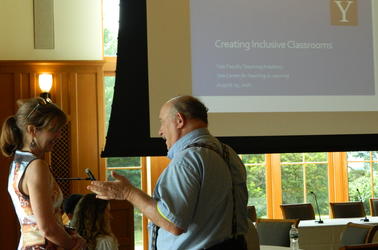
Instructional Enhancement Fund
The Instructional Enhancement Fund (IEF) awards grants of up to $500 to support the timely integration of new learning activities into an existing undergraduate or graduate course. All Yale instructors of record, including tenured and tenure-track faculty, clinical instructional faculty, lecturers, lectors, and part-time acting instructors (PTAIs), are eligible to apply. Award decisions are typically provided within two weeks to help instructors implement ideas for the current semester.
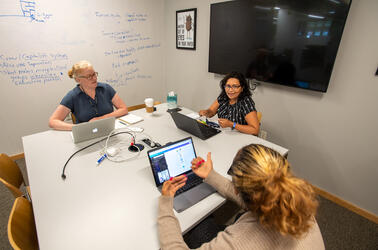
The Poorvu Center for Teaching and Learning routinely supports members of the Yale community with individual instructional consultations and classroom observations.
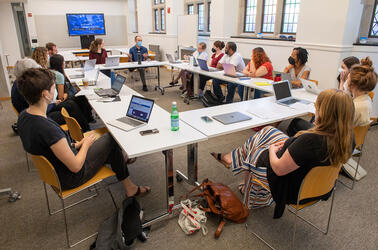
Reserve a Room
The Poorvu Center for Teaching and Learning partners with departments and groups on-campus throughout the year to share its space. Please review the reservation form and submit a request.
Join us for our next live demo on Thursday, April 4th to get a closer look at the Otus platform
Assessments
Grading & Reporting
Data & Analytics
Progress Monitoring
Request A Demo
Common Assessments
Standards-based grading, data-driven decisions, multi-tiered systems of support (mtss), portrait of a graduate, family engagement, product updates, implementation & support, partners & integrations, success stories, in the news, the ultimate guide to summative assessments.
Guides | 20 minutes
What are examples of summative assessments?
What are summative assessments in education.
Summative Assessments are—in simple words—the way educators determine what a student has learned. They are typically tests or cumulative assignments that provide teachers with insights into the overall success of their instructional methods. Summative assessments also reveal if students have or have not mastered the learning targets or standards. Additionally, summative assessments provide school administrators, districts, and other key decision makers with actionable data and insight into how successfully a curriculum or teacher performs.
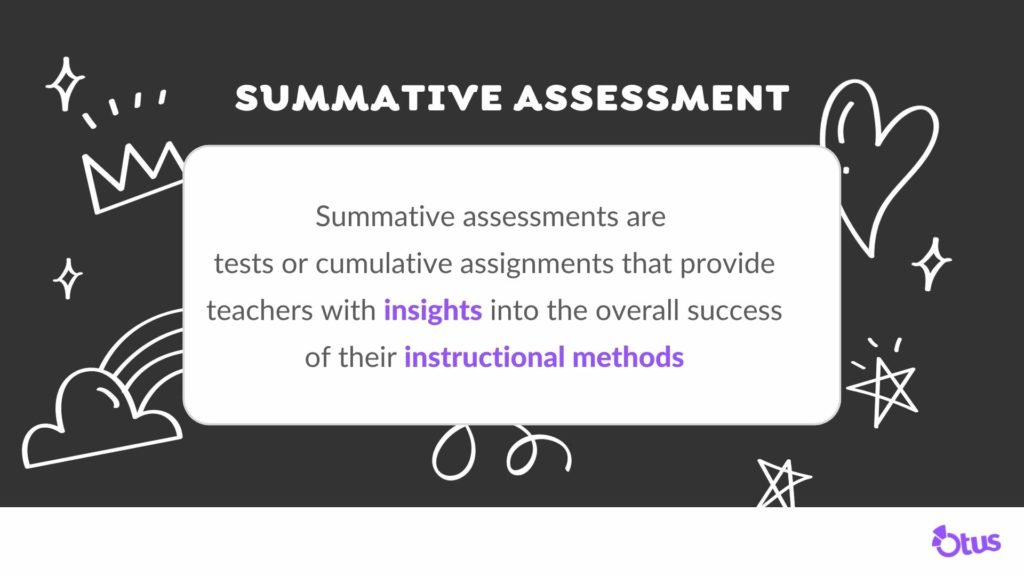
Summative assessments must be created following specific guidelines, which are outlined in detail below. In brief, summative assessments must provide valid, reliable data points that can be compared across classrooms, across time, and across graders in order to measure student growth and teacher, district, or curriculum efficacy.
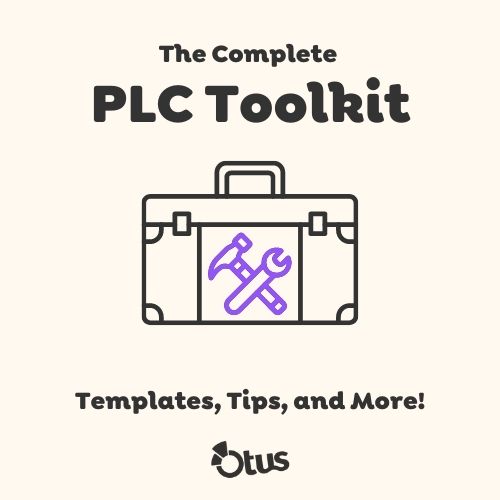
What does a summative assessment measure?
Summative assessments measure student learning along with teacher and curriculum effectiveness. Unlike formative assessments , which are often low-stake check-ins, summative assessments are typically high stakes, serving not only as the cumulation of a unit, semester, or school year, but also frequently serving as the key factor in a student’s grade or an administrator’s decision about a teacher or curriculum.
Teachers who incorporate mastery learning into their instructional process rely heavily on summative assessments to measure whether or not a student has mastered the content taught. When they have finished their units, teachers offer a summative—or cumulative—test, project, or essay to determine if students have reached the key learning targets. If a student does not reach a predetermined score (80%, according to most mastery learning models), teachers adjust what content comes next and often provide strategic interventions to provide students with the time needed to truly master the content. In this way, summative assessments can be thought of as formative, in that teachers inform next steps based on summative results.
Why are summative assessments used in education?
Summative assessments are highly valued in education due to the valuable data they provide. Unlike formative assessments, which are typically more subjective and rarely designed to be used across classrooms or schools for comparative purposes, summative assessments are created for validity and reliability.
Validity in summative assessments—or the ability of an assessment to actually measure what it is supposed to measure—ensures that teachers can be confident that students have or have not mastered the key learning objective. Additionally, valid summative assessments mean that educators and administrators are able to trust the summative assessment’s data about whether or not a teacher or curriculum performed as expected. A summative assessment’s validity ensures that decisions are made according to the true learning targets and not some side topic that may have unintentionally found its way into the assessment.
Reliability in summative assessments—or the ability of an assessment to reproduce consistent outcomes across time and setting regardless of grader—ensures that teachers and administrators are making decisions using accurate data, not outlying data. This is especially important in situations where a teacher’s salary or a controversial curriculum hangs in the balance.
Many educators have found that online tools allow them to more effectively gather and analyze data for validity and reliability, and to measure trends over time. Additionally, online tools allow teachers to quickly spot anomalies so they know which students need enrichment or intervention.
How do you write a summative assessment?
Summative assessments must be written according to a few specific guidelines.
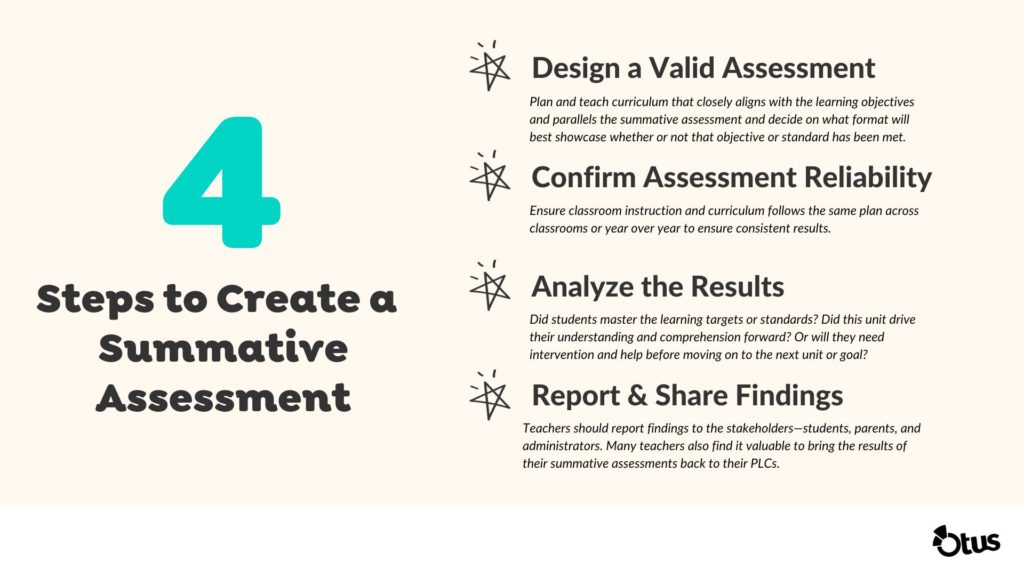
First, in order to ensure a summative assessment is valid, teachers must:
- Determine the key learning objectives or standards that they will teach.
- Decide on what format will best showcase whether or not that objective or standard has been met. In some cases, a multiple choice test might work best; in others, teachers may need to choose something more along the lines of an essay or project.
- Ensure that students understand the learning objectives, the method of the summative assessment, and the grading scale or rubric. Students are far more likely to not only perform better on summative assessments but also to engage and take ownership in their learning when they clearly understand what they are being asked to do and why.
- Plan and teach curriculum that closely aligns with the learning objectives and parallels the summative assessment.
Second, in order to ensure a summative assessment is reliable, teachers must:
- Create a comprehensive grading plan—or rubric—to ensure data is consistently and correctly gathered.
- Ensure classroom instruction and curriculum follows the same plan across classrooms or year over year, depending on how the teacher is planning to use the data from the summative assessments.
- Decide on how the summative assessment will be given in order to ensure consistent results across classrooms or time. Does it always need to be given at a specific time of day or of year? Does the classroom need to be set up a certain way? Does the teacher provide specific prompts or help during the assessment?
- Create and execute the summative assessment according to the predetermined guidelines. Many teachers find it helpful to bring their summative assessments to their Professional Learning Communities (PLCs) for help in spotting questions that could take away from the test’s validity or reliability.
- Grade the summative assessment according to the predetermined guidelines. Many teachers find it helpful to bring in “blind graders”—fellow staff or other experts to grade the assessments without any background knowledge of students or classroom instruction.
Third, teachers should take time to analyze the results of their summative assessment. Did students master the learning targets or standards ? Did this unit drive their understanding and comprehension forward? Or will they need intervention and help before moving on to the next unit or goal? Teachers should then make decisions about how to proceed.
Fourth, teachers should report findings to the stakeholders—students, parents, administrators, and the like. Students are far more likely to improve their learning when they receive descriptive feedback—clear, exact descriptions of what a student got right or wrong, and more importantly, why they made certain mistakes and how to correct them.
Finally, many teachers find it valuable to bring the results of their summative assessments back to their PLCs. While there, teachers find support in analyzing data, understanding results, and creating intervention plans .
How do summative assessments fit in with the 5 types of assessment?
There are five foundational types of assessments:
- Diagnostic assessments , or pre-assessment, which teachers use to gauge students’ pre-knowledge and zone of proximal development. These typically occur once at the beginning of a unit.
- Formative assessments , which teachers use to determine where student knowledge is at mid-unit. These typically occur frequently throughout the unit.
- Summative assessments , which teachers use to determine student growth at the end of a unit. These typically occur once at the end of a unit.
- Interim assessments , which districts use to measure specific grades across schools. These typically occur once a year.
- Benchmark assessments , which bigger bodies (e.g. states) use to measure overarching student growth and school effectiveness. These typically occur once a year.
Typically, teachers create their diagnostic assessments to mirror their summative assessments in order to easily compare the results of a summative assessment to its unit’s diagnostic assessment. This allows teachers to quickly and easily see if students grew in the desired knowledge during the unit.
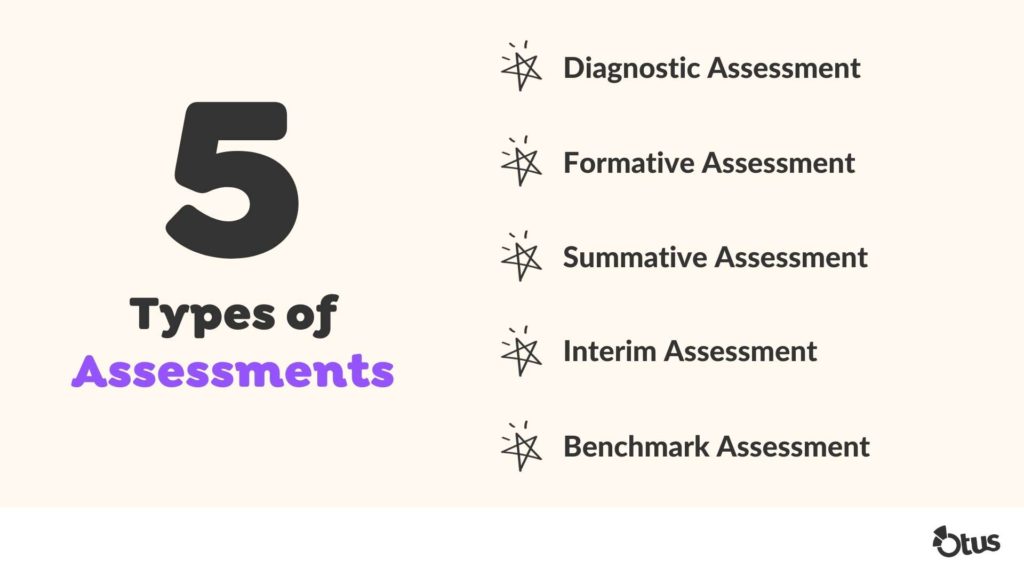
Additionally, many teachers work to align the majority of their formative assessments with their summative assessments. For example, teachers may use questions similar to the questions found on the summative assessments as exit tickets throughout the unit. They do this to tap into the “testing effect” of formative assessments: by allowing students to “test” themselves in a low-stakes environment, they are enabling students to recall up to 67% more of what they’ve learned on the final summative assessment than students would have via other study methods.
While summative assessments are not always interim and benchmark assessments, these two categories would fall under the same umbrella as summative assessments, as both teachers and administrators use interim and benchmark assessments to not only determine what students have learned, but to make decisions about staffing, curriculum, or school success.
While there is no one right summative assessment, it is important that teachers use or create summative assessments that will provide valid, reliable data across classrooms or year over year. For example, many teachers use:
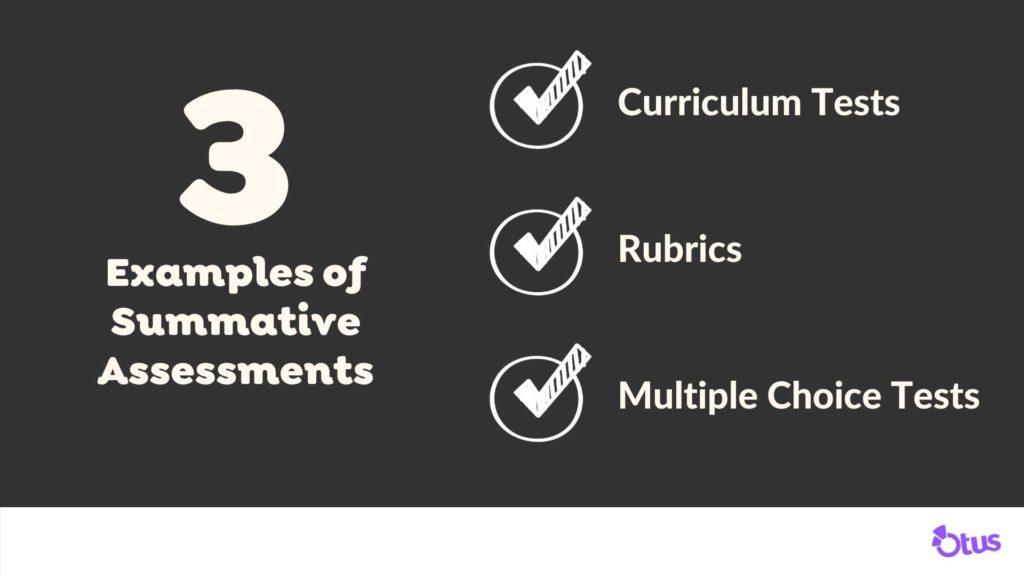
- Curriculum Tests : Although a teacher may tweak the test created by the curriculum here or there to align with their state or district’s learning targets, using the curriculum test provides a large degree of validity and reliability, and teachers can easily use the same test (with the same tweaks) in every class for as long as they use that curriculum.
- Rubrics : It is essential that teachers create strong, detailed rubrics when they choose to use writing assignments or final projects. Although it may take the teacher a few rounds with their Professional Learning Communities (PLCs) and iterations in classrooms, eventually teachers should land on a rubric that they can use year over year for reliable data.
- Multiple Choice Tests : These are perhaps the easiest summative assessments to use in terms of gathering and comparing data. However, it can be easy to create multiple-choice questions that don’t align well with the learning objectives, which compromises the validity of the test. Teachers do well to bring their multiple-choice tests to PLCs to get peer feedback on their summative assessments before bringing them to their class.
Again, it’s important to note that regardless of what type of assessments teachers choose to use, these assessments should be used to gauge student learning and make critical decisions about how to enhance the learning process so students receive the best learning opportunities possible.
Privacy Overview
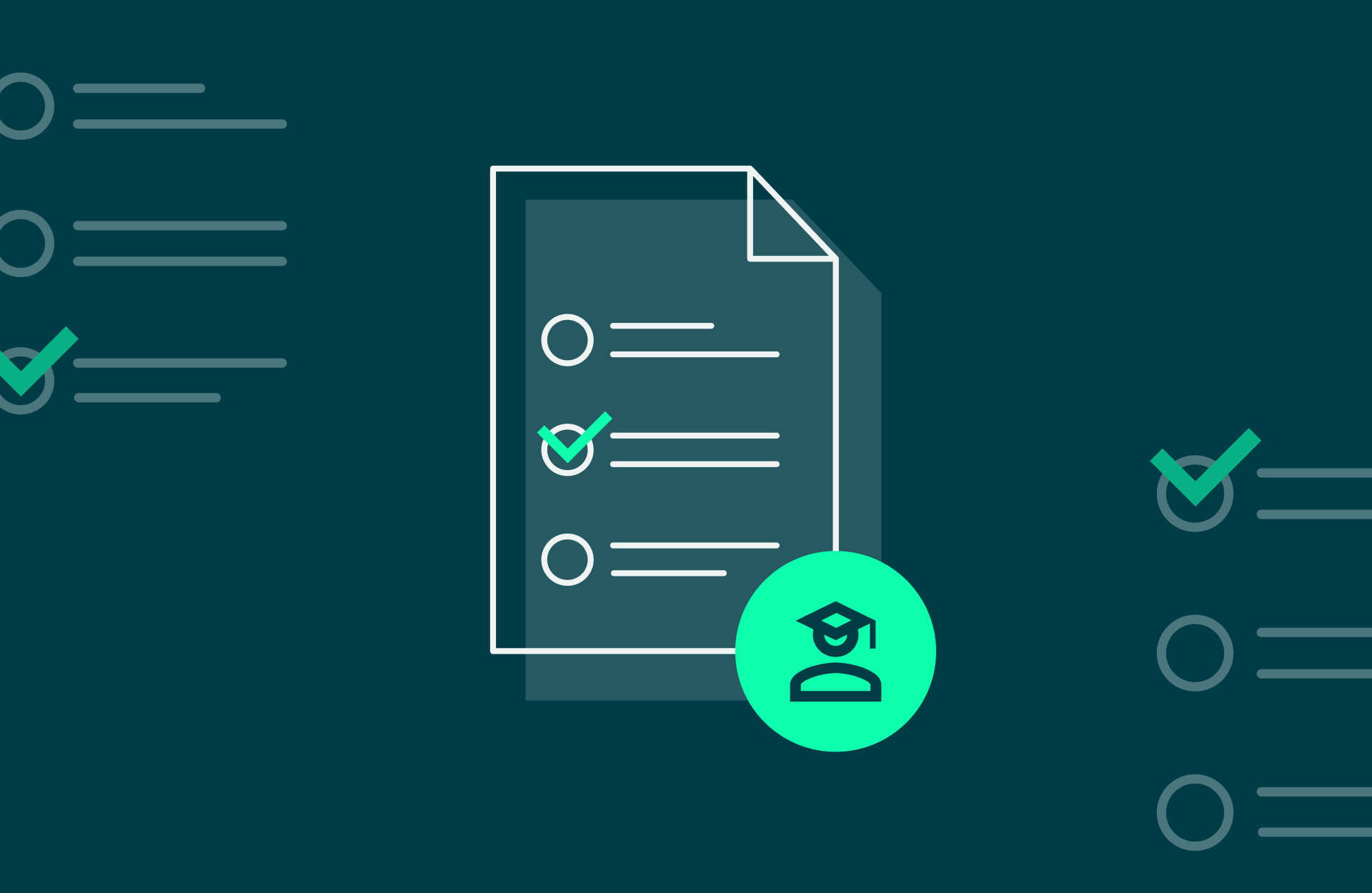
What is summative assessment? How to further learning with final exams

Grading can be learning, for both students and teachers.
By completing this form, you agree to Turnitin's Privacy Policy . Turnitin uses the information you provide to contact you with relevant information. You may unsubscribe from these communications at any time.
Understanding the meaning and function of summative assessment helps clarify its role within education as a critical component of bridging teaching and learning. In this post, we take a closer look at summative assessment’s qualities with the end goal of ensuring that summative assessment supports learning and informs teaching.
Assessment is a term that describes tests, quizzes, exams, and assignments that measure student learning. Each of these methodologies can provide students and teachers with insights. Educators receive data on what students have and have not learned and gain observations into teaching efficacy and exam design. Students, in turn, recognize any learning gaps they might have, and when they receive feedback, understand next steps to further learning.
The most high-stakes type of assessment is called summative assessment. Summative assessment often comes at the endpoint of learning, whether at the end of a unit, course, or curriculum, serving largely as a pure evaluation of knowledge.
It’s easy to consider summative assessments as a final chapter to learning, but summative assessments can also act as a milestone and inform next steps for both educators and students. By examining the definition of summative assessment as well as its capabilities, educators can embrace its strengths, bolster its shortcomings, and foster learning.
Summative assessment is a specific type of assessment that evaluates learning and offers little opportunity for providing student feedback because of its positioning at the end of a learning unit. They are usually high-stakes, contributing to a large portion of a student’s course grade (e.g., final exams) or an exam that has a high impact on a student’s educational outcome. (e.g., standardized exams or entrance exams). Summative assessments include heavily weighted midterm exams, final exams, licensure tests, and standardized exams like A levels in the UK, SATs in the United States, Matriculation Exams in Finland, National Boards in India, or the CSAT in South Korea.
In such a high-stakes context, failing or struggling on summative assessments can negate student effort in other areas of study. On the other hand, summative assessment can be an effective tool to evaluate student knowledge and in the realm of licensure and certification exams, determine qualification for beginning a career.
While we aim to focus discussion on summative assessment, it’s important to describe another type of assessment to provide context; formative assessments not only evaluate learning but provide feedback to students and data to instructors. While formative assessments may or may not be given a grade, they most certainly further learning and occur throughout the course to support student learning needs, and often provide a safe space for failure . Formative assessments include assignments, tests, in-class activities, quizzes, and even midterm exams when they include feedback and opportunities for instructor intervention.
Best practices in formative assessment include providing timely and actionable feedback to students before the next assessment ( Hattie & Timperley, 2007 ).
While formative assessment is the measurement and support of learning as it takes place, summative assessments are evaluations of what a student has learned at the end of a given period (e.g., semester or training course). By assessing students at the end of a module, course, or curriculum, educators gain insight into how well their students have mastered the content and how effective their teaching methods were.
Even though summative assessments are situated at a point where students will find it hard to action results, data from summative assessments can still be used to inform curriculum planning and teaching, as well as any future exam adjustments.
That said, when possible, it’s important to balance formative and summative assessments within a term or curriculum. Fortifying summative assessments with prior formative assessments can support a student’s educational journey. Students who understand what they know and what they need to know in order to move forward are more likely to be prepared for final evaluation. Furthermore, preparing students for final evaluation with frequent opportunities to fail safely and receive feedback reduces stress, increases learning outcomes, and can mitigate academic misconduct .
While every type of assessment has its function to evaluate, every type of assessment, too, can be maximized for learning and teaching. Mid-course exams, for example, have the potential for both summative and formative qualities, serving to evaluate mastery (summative) and provide feedback to promote student learning (formative).
Without feedback, a midterm exam is purely summative. And while a summative component to a mid-course exam is reasonable, there is a lot more potential to them. It is important to provide feedback on mid-course exams so that students understand what they do and do not know and have the tools to bridge learning gaps for the next assessment and ultimately their final exam.
When assessments are provided with timely and actionable feedback, students have the information they need to facilitate their own learning; in this way, even high-stakes midterm exams can pivot towards formative learning opportunities for students. Additionally, summative assessments contain information critical for teacher and curriculum intervention as well as future exam design.
While formative assessments hinge on providing students with immediate feedback to help with the learning process, summative assessments happen after the student learning occurs. However, this doesn’t mean that communicating students’ performance is any less important.
For students to understand what content they have mastered and which topics might need additional study time, they need a detailed breakdown of their performance.
Categorizing summative assessment questions can give instructors the granular performance data they (and their students) need. By tagging exam items to course topics or learning objectives, faculty can provide the detailed feedback students need to be more focused in their study efforts.
Summative assessments are an important part of the assessment process and are incredibly valuable to both students and faculty. By ensuring high-stakes exams are secure, and providing students with performance feedback, educators can gain insight into how well students have learned the content and how well instructors have presented it.
Summative assessments evaluate content mastery. Generally, they are end-of-course or end-of-year exams; however, these are not the only applicable uses of summative assessments. Evaluating student learning could also come at the end of a chapter or learning module with mid-course exams.
Summative exams can also be multi-functional, as they, like all assessments, are rich with data. When item analysis and psychometrics accompany summative assessment, instruction is bolstered. When an assessment occurs at the end of a course or year or curriculum, data insights help educators make adjustments to teaching and curriculum so that future learning can be bolstered. When category-tagging is employed in tools like ExamSoft, educators can pinpoint student preparation for things like licensure exams. And conducting item analysis can inform effective exam design.
Summative assessments are by nature, high-stakes, and very stressful.
Who hasn’t woken from a nightmare in panic about missing or failing a final exam, even decades out from school? The reality that summative assessments can make or break academic success is deeply implanted in our psyche.
While there is little disagreement among educators about the need for or utility of summative assessments, debates and disagreements tend to center on issues of fairness and effectiveness, especially when summative-assessment results are used for high-stakes purposes.
Fair and inclusive assessments uphold accurate assessments. When exams are not fair nor inclusive, they become vulnerable to misconduct, resulting in missed learning opportunities. When exams do not cover what was taught, students may feel stressed and vulnerable. These missed opportunities can compound and widen learning gaps.
Assessments need to contain a variety of formats and question styles to measure different components of learning and include different learning styles. Summative assessments, when poorly designed, reward memorization rather than deep understanding of concepts. Encouraging competition between students, which can happen when grading on a curve, can also increase stress and decrease fairness.
Additionally, when test-takers are not sure how they will be evaluated, summative assessments can be unfair and inaccurate. Providing rubrics to students and graders ensures clarity of expectations and ensuing measurement of learning.
When summative assessments are stressful, do not accurately measure learning, aren’t preceded with learning opportunities beforehand, and/or don’t test what has been taught, they also become more vulnerable to academic misconduct and shortcut solutions like cheating, plagiarism, and AI Writing misuse.
Assessments are a checkpoint for student learning and teaching efficacy; consequently, accurate student responses are critical to increasing learning outcomes.
Most summative assessments are given with the understanding that the student’s score counts toward their final grade. As such, keeping these secure from academic dishonesty is paramount to providing a fair experience for all exam-takers. Though many educational institutions are moving to computer-based testing (CBT), taking exams on laptops or other devices brings a new list of potential security issues, such as access to the internet or other applications during an exam. An effective way to ensure exam integrity is testing software that does not allow use of the internet during an exam and prevents students from accessing other applications on their device.
Preventing academic dishonesty by blocking exam-takers’ information sources isn’t the only point to consider; ensuring students don’t share assessment items is also a concern. Once a test question is compromised, it’s no longer a valid measurement of student learning. Thus, keeping questions secure is vital.
Assessment security is a focus of Professor Phillip Dawson, an authority on assessment security from Deakin University in Australia, who defines assessment security as: “Measures taken to harden assessment against attempts to cheat. This includes approaches to detect and evidence attempts to cheat, as well as measures to make cheating more difficult.”
Dawson suggests a multilayered approach to assessment design, with seven standards for assessment security that institutions ought to consider:
- Coverage across a program - how much of a degree should be secured?
- Authentication - how do we ensure the student is who they say they are?
- Control of circumstances - how can we be sure the task was done in the intended circumstances?
- Difficulty to cheat metrics - we need to know how hard it may be to cheat a task.
- Detection accuracy metrics - we need to know if our detection methods work.
- Proof metrics - we need to be able to prove cases of cheating.
- Prevalence metrics - we need to know approximate rates of undetected, detected, and proven cheating ( Dawson, 2021 ).
According to Professor Roseanna Bourke, Director of Educational Psychology programme and Institute of Education at Massey University, there is a link between student cheating and student understanding and investment in the assigned tasks; when students don’t understand questions and lack confidence, learning itself becomes the barrier ( Bourke, Integrity Matters, n.d. ).
Providing support to students throughout a course or curriculum mitigates academic dishonesty in summative assessments. When students feel seen and supported with formative feedback in their educational journey, they are less likely to cheat. Additionally, rubrics can make clear the purpose of each question.
As stated, summative assessment is useful when the data exchange is maximized and accurate. Not only should it provide information about content mastery to instructors, it can also act as a reservoir of statistics about learning trends, item analysis, and exam effectiveness. Finally, and when possible, summative exams can take on formative qualities when feedback is provided. All of these data points directly benefit student learning.
Because it is a platform to demonstrate a culmination of knowledge, designing summative assessments is particularly critical to make the test accessible and inclusive for all different types of learners, and thus promote accurate measurement and data insights. Exam design principles include:
- Test what has been taught; aligning summative assessment with instruction models and promotes integrity for students.
- Design assessments that focus on measuring both breadth and depth of student knowledge and consider eliminating components that do not inform learning. Offer a variety of assessment formats. Multiple-choice questions can effectively breadth of knowledge in a limited time while short-answer and long-answer formats can evaluate higher-order thinking.
- Offering a variety of formats and questions styles within a summative assessment can also accommodate different learning styles. When diverse formats are offered, a larger spectrum of learning can be assessed. Additionally, diverse formats provide different ways for students to demonstrate their learning.
- And consider eliminating grading on a curve, which can increase competition between students, some of whom may be cheating ( UC Berkeley, 2020 ). Researchers Schinske and Tanner state, “Moving away from curving sets the expectation that all students have the opportunity to achieve the highest possible grade” ( Schinske & Tanner, 2014 ).
- A rubric, too, benefits students by clarifying expectations and acts as added assurance that tests align to previously-communicated learning goals.
Finally, the summative assessment itself is a living document, one that can be continuously optimized.
Analyze student responses to ensure assessments are fair, and to examine answer patterns to see if shortcut solutions have been utilized. Item analysis , or formally examining student responses and patterns, can show whether or not summative assessments are accurately assessing student knowledge. The data (Did every student get one particular question wrong? Did every student get one particular question correct? What kinds of answers are your test questions eliciting? Did you get the answers you expected?) can inform both exam design and teaching. Furthermore, item analysis supports exam robustness by highlighting questions on exams that may need adjustment.
Category tagging , a feature in ExamSoft assessment software, can offer more in-depth insights into future testing. A nursing program, for instance, can evaluate readiness for certification and the strength of curriculum to prepare students for standardized exams. Of course, category tagging can also fortify summative assessment within the curriculum.
In conclusion, summative assessments function largely as a way to evaluate learning at critical learning junctions, whether at the end of a term, end of a curriculum, or for advancement into the next level of schooling or licensure. The nature of summative assessments make them high-stakes, sometimes to the extent that they can negatively impact all prior learning. Moreover, they lack the opportunity for feedback, given their position in the educational journey.
That said, summative assessments are not wholly an endpoint. They are an intersection rich with data for educators to inform teaching, curriculum, and exam design. For students, too, there can be opportunities to learn, either by feedback or via data analysis, their own learning gaps and how to bridge them.
When educators maximize the potential of summative assessment, they can foster learning.
Teaching Commons Conference 2024
Join us for the Teaching Commons Conference 2024 – Cultivating Connection. Friday, May 10.
Summative Assessment and Feedback
Main navigation.
Summative assessments are given to students at the end of a course and should measure the skills and knowledge a student has gained over the entire instructional period. Summative feedback is aimed at helping students understand how well they have done in meeting the overall learning goals of the course.
Effective summative assessments
Effective summative assessments provide students a structured way to demonstrate that they have met a range of key learning objectives and to receive useful feedback on their overall learning. They should align with the course learning goals and build upon prior formative assessments. These assessments will address how well the student is able to synthesize and connect the elements of learning from the entirety of the course into a holistic understanding and provide an opportunity to provide rich summative feedback.
The value of summative feedback
Summative feedback is essential for students to understand how far they have come in meeting the learning goals of the course, what they need further work on, and what they should study next. This can affect later choices that students make, particularly in contemplating and pursuing their major fields of study. Summative feedback can also influence how students regard themselves and their academic disciplines after graduation.
Use rubrics to provide consistency and transparency
A rubric is a grading guide for evaluating how well students have met a learning outcome. A rubric consists of performance criteria, a rating scale, and indicators for the different rating levels. They are typically in a chart or table format.
Instructors often use rubrics for both formative and summative feedback to ensure consistency of assessment across different students. Rubrics also can make grading faster and help to create consistency between multiple graders and across assignments.
Students might be given access to the rubric before working on an assignment. No criteria or metric within a summative assessment should come as a surprise to the students. Transparency with students on exactly what is being assessed can help them more effectively demonstrate how much they have learned.
Types of summative assessments
Different summative assessments are better suited to measuring different kinds of learning.
Examinations
Examinations are useful for evaluating student learning in terms of remembering information, and understanding and applying concepts and ideas. However, exams may be less suited to evaluating how well students are able to analyze, evaluate, or create things related to what they've learned.
Presentation
A presentation tasks the student with teaching others what they have learned typically by speaking, presenting visual materials, and interacting with their audience. This can be useful for assessing a student's ability to critically analyze and evaluate a topic or content.
With projects, students will create something, such as a plan, document, artifact, or object, usually over a sustained period of time, that demonstrates skills or understanding of the topic of learning. They are useful for evaluating learning objectives that require high levels of critical thinking, creativity, and coordination. Projects are good opportunities to provide summative feedback because they often build on prior formative assessments and feedback.
With a portfolio, students create and curate a collection of documents, objects, and artifacts that collectively demonstrate their learning over a wide range of learning goals. Portfolios usually include the student's reflections and metacognitive analysis of their own learning. Portfolios are typically completed over a sustained period of time and are usually done by individual students as opposed to groups.
Portfolios are particularly useful for evaluating how students' learning, attitudes, beliefs, and creativity grow over the span of the course. The reflective component of portfolios can be a rich form of self-feedback for students. Generally, portfolios tend to be more holistic and are often now done using ePortfolios .
Eberly Center
Teaching excellence & educational innovation, what is the difference between formative and summative assessment, formative assessment.
The goal of formative assessment is to monitor student learning to provide ongoing feedback that can be used by instructors to improve their teaching and by students to improve their learning. More specifically, formative assessments:
- help students identify their strengths and weaknesses and target areas that need work
- help faculty recognize where students are struggling and address problems immediately
Formative assessments are generally low stakes , which means that they have low or no point value. Examples of formative assessments include asking students to:
- draw a concept map in class to represent their understanding of a topic
- submit one or two sentences identifying the main point of a lecture
- turn in a research proposal for early feedback
Summative assessment
The goal of summative assessment is to evaluate student learning at the end of an instructional unit by comparing it against some standard or benchmark.
Summative assessments are often high stakes , which means that they have a high point value. Examples of summative assessments include:
- a midterm exam
- a final project
- a senior recital
Information from summative assessments can be used formatively when students or faculty use it to guide their efforts and activities in subsequent courses.
CONTACT US to talk with an Eberly colleague in person!
- Faculty Support
- Graduate Student Support
- Canvas @ Carnegie Mellon
- Quick Links
Created by the Great Schools Partnership , the GLOSSARY OF EDUCATION REFORM is a comprehensive online resource that describes widely used school-improvement terms, concepts, and strategies for journalists, parents, and community members. | Learn more »

Summative Assessment
Summative assessments are used to evaluate student learning, skill acquisition, and academic achievement at the conclusion of a defined instructional period—typically at the end of a project, unit, course, semester, program, or school year. Generally speaking, summative assessments are defined by three major criteria:
- The tests, assignments, or projects are used to determine whether students have learned what they were expected to learn. In other words, what makes an assessment “summative” is not the design of the test, assignment, or self-evaluation, per se, but the way it is used—i.e., to determine whether and to what degree students have learned the material they have been taught.
- Summative assessments are given at the conclusion of a specific instructional period, and therefore they are generally evaluative, rather than diagnostic—i.e., they are more appropriately used to determine learning progress and achievement, evaluate the effectiveness of educational programs, measure progress toward improvement goals, or make course-placement decisions, among other possible applications.
- Summative-assessment results are often recorded as scores or grades that are then factored into a student’s permanent academic record, whether they end up as letter grades on a report card or test scores used in the college-admissions process. While summative assessments are typically a major component of the grading process in most districts, schools, and courses, not all assessments considered to be summative are graded.
Summative assessments are commonly contrasted with formative assessments , which collect detailed information that educators can use to improve instruction and student learning while it’s happening. In other words, formative assessments are often said to be for learning, while summative assessments are of learning. Or as assessment expert Paul Black put it, “When the cook tastes the soup, that’s formative assessment. When the customer tastes the soup, that’s summative assessment.” It should be noted, however, that the distinction between formative and summative is often fuzzy in practice, and educators may have divergent interpretations and opinions on the subject.
Some of the most well-known and widely discussed examples of summative assessments are the standardized tests administered by states and testing organizations, usually in math, reading, writing, and science. Other examples of summative assessments include:
- End-of-unit or chapter tests.
- End-of-term or semester tests.
- Standardized tests that are used to for the purposes of school accountability, college admissions (e.g., the SAT or ACT), or end-of-course evaluation (e.g., Advanced Placement or International Baccalaureate exams).
- Culminating demonstrations of learning or other forms of “performance assessment,” such as portfolios of student work that are collected over time and evaluated by teachers or capstone projects that students work on over extended periods of time and that they present and defend at the conclusion of a school year or their high school education.
While most summative assessments are given at the conclusion of an instructional period, some summative assessments can still be used diagnostically. For example, the growing availability of student data, made possible by online grading systems and databases, can give teachers access to assessment results from previous years or other courses. By reviewing this data, teachers may be able to identify students more likely to struggle academically in certain subject areas or with certain concepts. In addition, students may be allowed to take some summative tests multiple times, and teachers might use the results to help prepare students for future administrations of the test.
It should also be noted that districts and schools may use “interim” or “benchmark” tests to monitor the academic progress of students and determine whether they are on track to mastering the material that will be evaluated on end-of-course tests or standardized tests. Some educators consider interim tests to be formative, since they are often used diagnostically to inform instructional modifications, but others may consider them to be summative. There is ongoing debate in the education community about this distinction, and interim assessments may defined differently from place to place. See formative assessment for a more detailed discussion.
While educators have arguably been using “summative assessments” in various forms since the invention of schools and teaching, summative assessments have in recent decades become components of larger school-improvement efforts. As they always have, summative assessments can help teachers determine whether students are making adequate academic progress or meeting expected learning standards, and results may be used to inform modifications to instructional techniques, lesson designs, or teaching materials the next time a course, unit, or lesson is taught. Yet perhaps the biggest changes in the use of summative assessments have resulted from state and federal policies aimed at improving public education—specifically, standardized high-stakes tests used to make important decisions about schools, teachers, and students.
While there is little disagreement among educators about the need for or utility of summative assessments, debates and disagreements tend to center on issues of fairness and effectiveness, especially when summative-assessment results are used for high-stakes purposes. In these cases, educators, experts, reformers, policy makers, and others may debate whether assessments are being designed and used appropriately, or whether high-stakes tests are either beneficial or harmful to the educational process. For more detailed discussions of these issues, see high-stakes test , measurement error , test accommodations , test bias , score inflation , standardized test , and value-added measures .

Alphabetical Search
How to Write a Summative Essay
Published by Boni on November 3, 2022 November 3, 2022
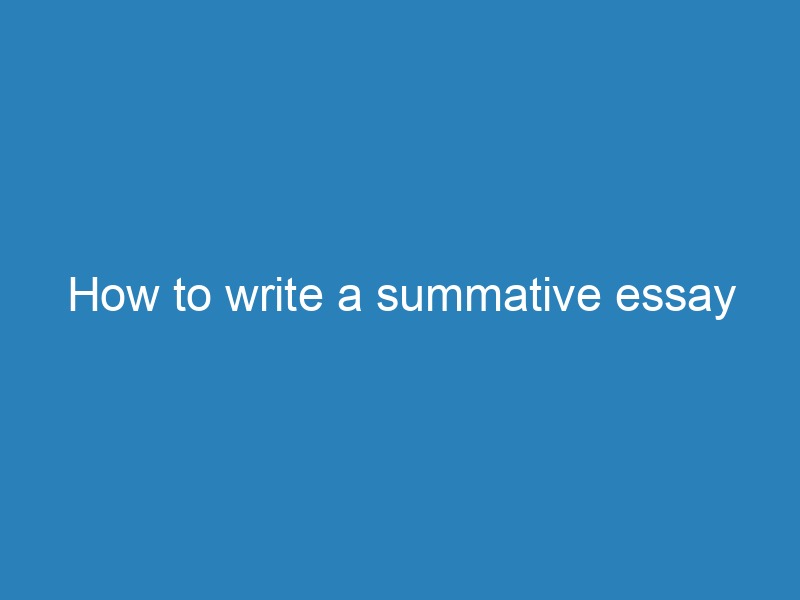
Have you ever been asked to write an essay about a book, movie, article, speech, or other reading material? Perhaps your teacher gave you a prompt and asked you to respond to it in an essay. If so, that was most likely a summative essay. A summative report is a short piece of writing about someone else’s work. It explains the main ideas of the reading material and evaluates them. Such essays are often assigned to test your ability to understand what you read and articulate your thoughts. This post will explore valuable tips for writing a successful summative essay.
Elevate Your Writing with Our Free Writing Tools!
Did you know that we provide a free essay and speech generator, plagiarism checker, summarizer, paraphraser, and other writing tools for free?
What is a Summative Essay?
A summative essay is an academic paper that requires students to evaluate and synthesize information learned over a unit or semester. It summarizes, describes and evaluates the main ideas of the reading material. A summative essay can be written about almost any topic. It can be based on a book, a speech, an article, or other reading material. To report a good summary essay, you must read the material carefully, take notes, and think about what the author is trying to say.
Then, you should organize your notes and use them to write a summary. A summative essay is not the same as a book review. While both summarize reading material, book reviews focus on quality. They give an evaluation of the book based on a set of criteria.
Types of Summative Writing
There are different types of summative writing a student can handle. Understand that every style is unique and has other requirements. That means you must understand the summative writing asked before handling it. Allocate adequate time to the essays since you have to read, draft, edit and revise the paper before submitting.
Below are the main types of summative writing:
Persuasive and opinions arguments may be used interchangeably. However, you should understand that they are pretty different. In an opinion essay, you have to state your ideology and then back up your side of the story with logic and facts. In this type of summative writing, students should show some improvement throughout their studies for evaluation from the teachers. This type of summative writing is given to students in 5th grade who must write a persuasive speech based on their opinion.
2. Explanatory
This summative essay is quite common in social science curriculums. Here the students focus on the unit plan’s key ideas, main points and domain-specific ideas such as a reaction paper .
3. Argumentative
The argumentative summative essay requires developing and establishing a claim the student makes during the introduction. The claim has to be supported by details such as information and resources in the essay’s body. There should also be an opposing claim where the student should state the contrasting point of view and add supporting evidence.
4. Evaluative
In this summative essay, the writer is supposed to take a given idea, element or individual in the curriculum and evaluate them in a specific criterion. Here students have to have their theme and stand by it using unit materials and text evidence. A good example is a cause and effects essay .
5. Compare & contrast
This essay has diverse attributes to the backgrounds and themes, such as specific geographic locations or individual personalities. These essays comprise a set of qualities and characteristics that students should compare and contrast using research evidence.
These summative essays do not require the student to pick a side. However, they are asked to cover both sides in comprehension and compare them thoroughly.
6. Theorizing
These essays will answer critical “what if” questions. The student is given a theory that contrasts or reflects the society today. The writer should take an individual, era or event to work on.
Elements of a Good Summative Essay
An effective summative essay ought to have the following crucial elements:
- Validity – the report should reflect what the students have learned during the term or semester.
- Reliability – the writing should deliver similar results throughout daily conditions, settings of classrooms and student groups.
- Authenticity – the summative essay should reflect the skills in the real world outside the classroom context.
- Variety – this essay should reflect the usage of different views and words to make the diverse.
Here is a summary essay with a response on how to tame a Wild Tongue that you might be interested in reading.
Format of Summative Essays
The summative essay formats are almost similar to any essay you have written. These essays will typically follow the standard format for writing an essay. An effective summative report must include an introduction, a body, and a conclusion.
- Introduction
The introduction should be clear, interesting, and engaging. It should also be written so that a reader who has never read the material can understand what it is about. A good introduction gives the reader a preview of what you will discuss in the rest of the essay. It hooks the reader and makes them want to read more.
The body is where you discuss the reading material and support your argument with evidence. The body should be well-organized. You can use various strategies to organize your essay, including a chronological order, a compare-and-contrast order, or a topical order.
The conclusion is the final part of the summative essay. The conclusion should restate your main point, summarize the paper, and bring the reader back to the introduction.
A standard essay is usually between five and ten double-spaced pages long. The introduction should be between one and three paragraphs long. The body of the paper should be between two and five paragraphs long. The conclusion should be one paragraph long.
Tips on How to Write a Good Summative Essay
Before writing a summative essay, you should read the reading material carefully. Remember to highlight or take notes while reading so you don’t forget important points. Here are some of the tips to keep in mind when writing this essay:
- Create an outline before you begin writing the essay
- Get authentic academic material and only use that for the essay
- Organize your paper in paragraphs
- Gather more information and knowledge on the topic of discussion
- Proofread the article before submitting it to ensure everything is okay, and there are no grammatical errors
- Curate a superb introduction – your introduction should be catchy and precise. It should invite your readers to keep reading.
- Relevant essay – as you create your summative report, ensure it is relevant and meaningful to the real world. A typical person should resonate with your paper.
A summative essay explains the main ideas of the reading material and evaluates them. To write an excellent summarizing essay, you must read the reading material carefully and take notes. You should also clearly understand the reading material and write your essay based on the material, not your opinion.
Need Help Writing Your Summative Essay?
Writing an summative essay is difficult, especially if you don’t have much experience writing such essays. Even if you read the material carefully and take notes while reading, summarizing it right in your own words may not be straightforward. Supporting your thesis statement with evidence from the reading material can be even more challenging. If you are having trouble writing a summative essay, you could seek professional speech writing help .
Most students do not have enough time to complete their essays, and that is where the speech writing help comes in. These services are efficient since they use professional writers and tools to produce high-quality papers. You could talk to us at Gudwriter, and we will help you with the summative report.
Explore the best tips on how to write an explication essay .

Special offer! Get 20% discount on your first order. Promo code: SAVE20
Related Posts
Free essay guides, how to write a graduation speech.
What is a Graduation Speech? A graduation speech is delivered at the graduation event to congratulate the graduates and provide them with advice and motivation. The speaker could be a student or professor. Your chance Read more…
Free TEAS Practice Test
Study and prepare for your TEAS exam with our free TEAS practice test. Free ATI TEAS practice tests are valuable resources for those hoping to do well on their TEAS exams. As we all know, Read more…


How to Write a Profile Essay
To learn how to write a profile essay, you must first master where to begin. Given that this is a profile essay, it will be much simpler for students who have previously read autobiographical articles Read more…
- eLearning Platform
- eLearning Content
- Access 800 Courses on our Platform
- Bespoke eLearning
- Virtual Training
- Our Pricing
- Request a Demo
- Content Partnerships
- Whitepapers
- Most Popular Blogs
- Personal Learning Journeys
- Training Feedback Form
- Training Needs Analysis Template
- Personal Development Plan Template
- Learning and Development Strategy
- Talent Management Strategy
- Kirkpatrick Evaluation Model
- Microlearning
- Informal Learning
- 70 20 10 Learning
Home » Blog » Formative and Summative Assessments: Examples and Differences
Formative and Summative Assessments: Examples and Differences
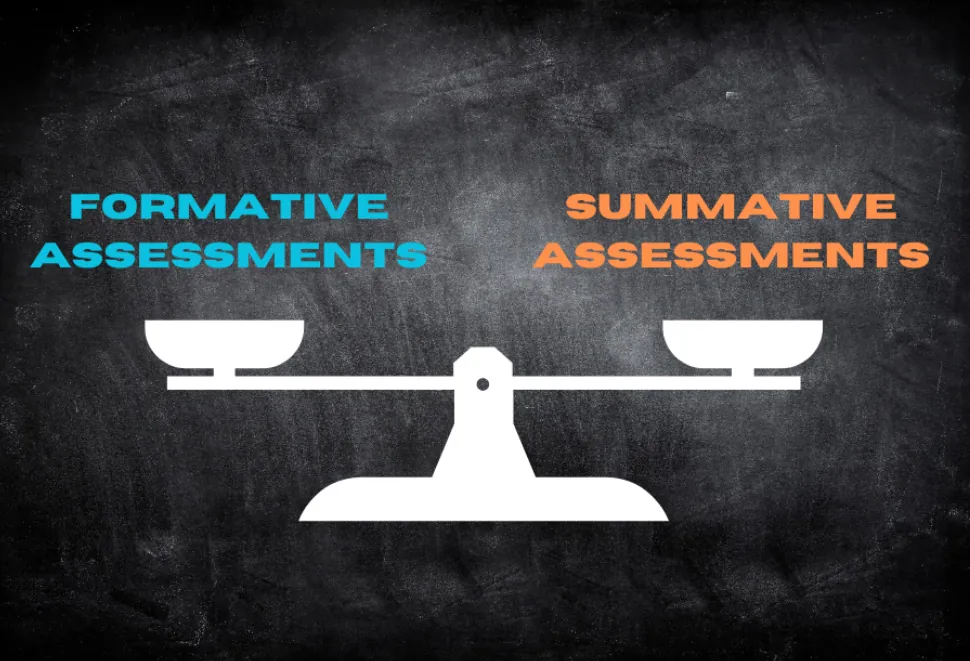
One of the primary benefits of using formative and summative assessments is that you aren’t forced to choose between them. They work exceptionally well when used in combination.
In this article, we’ll be breaking down precisely what formative and summative assessments are, the key differences between them, the benefits of their use, and providing a range of examples to help illustrate how they can be implemented in the classroom.
If you’re looking for an effective way to assess student learning and measure progress, read on to find out how formative and summative assessments can help.
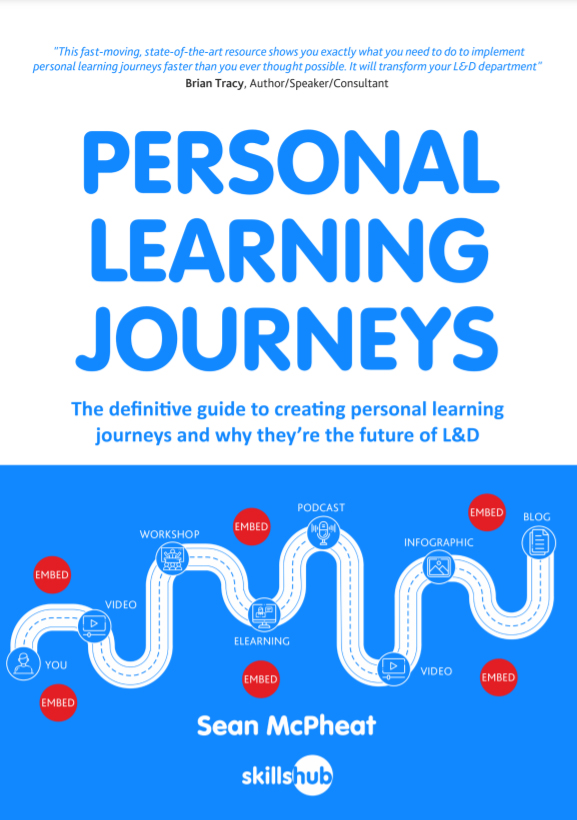
Learn How To Create Personal Learning Journeys For FREE!
Formative assessments: definition and purpose.
Before we get into examples of their use, it’s essential that we first define precisely what both formative and summative assessments are and how they differ.
Formative assessments are employed regularly throughout a set learning period, be that a chapter, unit, or term, and help track progress and identify areas where students may struggle or need more support.
They also give the teacher and course designer the data they need to improve the learning experience and make any necessary changes that may be required throughout a system.
Rather than strict exams, formative assessments are usually relatively low-stakes, meaning they do not always need to be graded or even marked. This helps to create a non-threatening atmosphere and encourages students to take risks in their learning without fear of failure.
Formative assessment tasks usually rely on feedback from both students and the teacher, with learners receiving feedback on performance as soon as possible.
Uses of Formative Assessments
As mentioned, one of the primary uses of a formative assessment is to gauge student understanding and identify knowledge gaps that may need extra work.
Formative assessments can also be used to help inform curricular decisions, provide valuable data on the effectiveness of a course or lesson, and allow students to monitor their progress over time.
In addition, formative assessments are valuable in helping teachers gain real-time insight into a group’s collective understanding, allowing them to rapidly adapt their training or lessons accordingly.
Benefits of Using Formative Assessments
There are a range of benefits to employing formative assessments as part of your teaching strategy, including the following:
- Improved student or employee engagement and motivation – By allowing students to track their learning journey, you can help them take ownership of their learning experience. This can be highly motivating for students, as it encourages a sense of progress and accomplishment.
- Better assessment of real-world understanding – By using formative assessments that involve practical skills or application, you can better understand how well your students understand the real-world implications of the content they are studying.
- Enables rapid identification of areas of difficulty for learners – Through formative assessments, you can quickly identify areas that students may be struggling with. This helps to ensure that these areas are addressed rapidly and effectively.
- Allows teachers to tailor their lessons to the needs of the group – Teachers and course designers can use the data from formative assessments to tailor their studies according to the group’s needs and ensure that they meet all learning objectives.
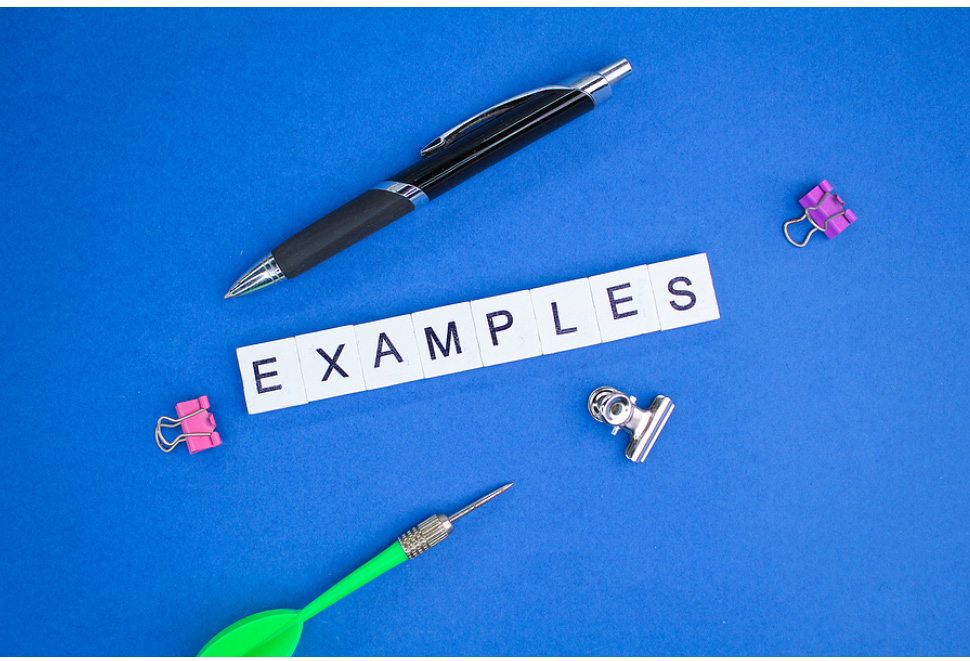
Examples of Formative Assessments
To clarify how formative assessments can be used, below are a few examples of tasks that could be used both in the classroom and in a digital learning environment.
Classroom-Based Examples
The following examples can be valuable to employ in a classroom setting:
1. Quizzes and polls
Simple and easy to execute, quizzes and polls are a low-effort way of gauging student understanding at regular intervals throughout a lesson.
2. Peer feedback and self-assessment
Peer-based feedback sessions and self-assessment questionnaires can help identify areas where students may need extra support or guidance while giving vital insight into how students perceive their progress.
3. Class discussions and debates
Encouraging students to discuss their different perspectives on a given topic or concept allows teachers to better understand how well they comprehend the material. It also gives students the opportunity to have their ideas heard and helps create a sense of solidarity within the classroom.
Online and Digital Examples
With the rise in the use of digital learning tools and technologies , there is also a range of online-based practices that can be used as formative assessments, including:
1. Interactive quizzes and games
The gamification of quizzes or other learning activities can provide an engaging way to assess student understanding and offer real-time feedback.
2. Virtual simulations and case studies
Where more vocational skills are being taught, virtual simulations and case studies can test students’ problem-solving capabilities in a low-stakes environment.
3. Online discussion forums and feedback platforms
One of the benefits of using an online learning platform is the wide range of features available to assess student understanding. Discussion forums, peer feedback platforms, and automated feedback systems can all be used as formative assessment tools.
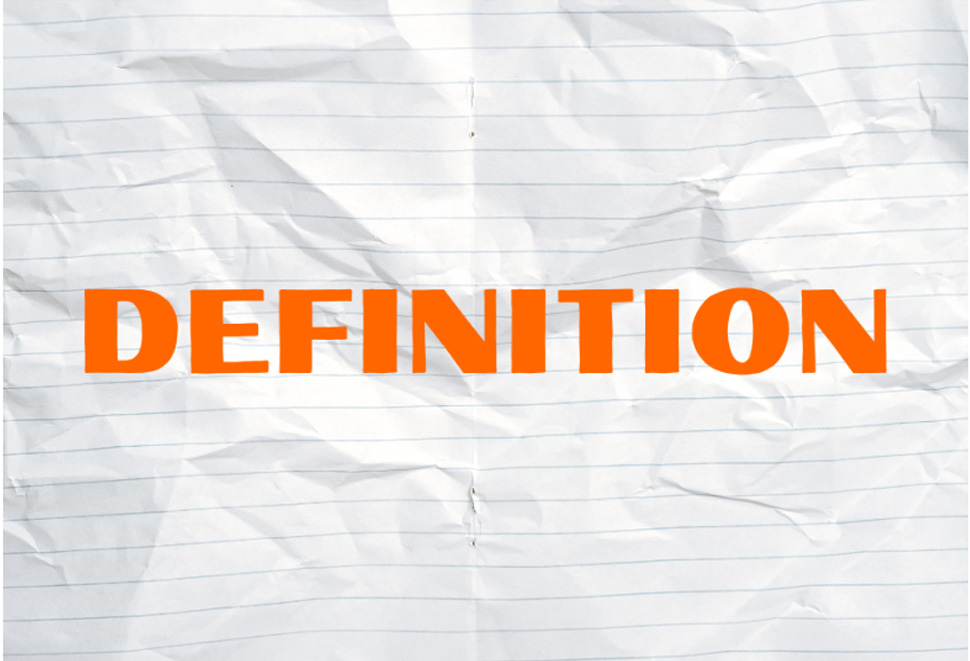
Summative Assessments: Definition and Purpose
Compared to formative assessments, summative assessments are conducted at the end of a defined learning period and often represent the final grade for the course.
To provide a comprehensive assessment grade, summative assessments evaluate a student’s overall understanding and performance of the skill or concept studied.
They can also be used to track educational progress over time, such as in standardised testing, as well as help to inform curricular decisions and the effectiveness of teaching methods.
Uses of Summative Assessments
Summative assessments test student mastery of content, assess their overall understanding of a subject or topic area and generally give them a final mark.
For teachers and course designers, a summative assessment allows them to measure the effectiveness of their teaching and make any necessary changes or improvements.
Summative assessments can also be used to compare student performance across different classes, courses, and programs.
Benefits of Summative Assessments
As with formative assessments, there is a range of benefits associated with the use of summative assessments, including:
- Provides an overall assessment score – Summative assessments can provide a more accurate assessment of student understanding and performance, offering an overall grade or score.
- Helps track educational progress over time – Educators can track student progress to identify improvement areas through standardised testing or other summative assessments.
- Helps inform curricular decisions – Summative assessments can assess the effectiveness of a particular course or program and help inform future curricular choices.
- Offers an efficient way to measure learning outcomes – By providing an overall assessment grade, summative assessments offer a convenient way to measure the success of a teaching strategy in one go.

Examples of Summative Assessments
To clarify how summative assessments can be implemented, here are a few examples of traditional assessment methods, such as essays and exams, and performance-based assessments, such as presentations and projects.
Traditional Assessment Methods
Below are some examples of traditional assessment methods:
1. Examinations and final tests
Examinations are widely used to assess student knowledge and understanding at the end of a course or program. They are easy to implement and provide a quick and efficient way to evaluate student performance.
2. Term papers and essays
Essays and term papers are another traditional assessment method used alongside examinations. Essays test students’ ability to analyse a given topic or concept in detail, providing insight into their understanding of the subject matter.
3. Projects and presentations
Where skill-based or vocational courses are being taught, projects and presentations can test a student’s performance in class. These assessments allow students to demonstrate their understanding of the subject matter and show their ability to apply and transfer the knowledge in a practical context.
Performance-Based Assessments
Performance-based assessments are best employed when assessing practical skills or processes. Examples of performance-based summative assessments include:
1. Practical exams and demonstrations
Practical tests and demonstrations are often used to assess students’ physical abilities, such as in sports or vocational courses. These assessments test a student’s understanding of a particular skill or concept by having them demonstrate it in a real-world setting.
2. Portfolios and showcases
Where creative or design-based courses are being taught, portfolios and showcases allow students to demonstrate their understanding of the concepts in a practical way. These assessments require students to use their creative skills to produce a tangible output, such as an artwork or multimedia presentation.
3. Capstone projects and dissertations
Dissertations and capstone projects are often used to assess students’ understanding of complex topics or skills. These assessments require students to demonstrate their knowledge of the subject matter by producing an in-depth research or project that meets specific criteria.

Critical Differences Between Formative and Summative Assessments
Now that you have a fuller understanding of what both formative and summative assessments represent and how they can be employed, here’s a summary outlining the key differences between the two:
Timing and Frequency
One of the most essential distinctions between the two types of assessment is when they are conducted. Formative assessments occur throughout the course and act as checkpoints to monitor student progress.
In contrast, summative assessments are shown at the end of a defined learning period and only count towards an overall grade or score.
Purpose and Focus
Formative assessments are designed to provide feedback on understanding and inform instruction in real-time. In contrast, summative assessments evaluate student performance of a skill or concept and can help inform curriculum decisions.
Feedback and Evaluation Process
The feedback and evaluation process for formative and summative assessments differs significantly. Formative assessments are designed to offer real-time feedback on performance.
In contrast, summative assessments provide an overall assessment score or grade that reflects the student’s understanding of the subject matter at the end of a course or program.

Which is the Right Assessment Approach to Utilise?
Choosing the correct assessment approach for your students ultimately depends on the goals you are trying to achieve, the type of course or program being taught and the knowledge and skills that need to be assessed.
To help you decide, consider the following:
Considerations for Selecting Formative Assessments
Some of the critical considerations for making use of formative assessments include:
- Regular feedback – Formative assessments should be implemented regularly to ensure students receive regular feedback on their understanding and performance.
- Low-stakes testing – As formative tests don’t count towards an overall grade, they should be designed as low-stakes tests to help encourage participation.
- Inform instruction – Formative assessment results can inform instruction in real-time, allowing educators to tailor their teaching approach to student needs.
Considerations for Selecting Summative Assessments
When making use of summative assessments, it’s essential to consider the following points:
- Assessment goals – Before designing a summative assessment, clearly define the purposes of the evaluation and how it will be used to evaluate student performance.
- Assessment criteria – When creating a summative assessment, ensure that you set clear and concise evaluation criteria that allow students to demonstrate their understanding fully.
- Inter-rater reliability – To ensure fairness and accuracy, consider having multiple assessors score each student’s work when creating a summative assessment.
Using Both Formative and Summative Assessments in Learning and Development
As mentioned, one of the primary benefits of using formative and summative assessments in learning and development is that they can provide a more comprehensive evaluation of student performance.
By implementing both assessment forms, educators can better understand their student’s progress and tailor their instruction for maximum impact.
Formative assessments can measure progress and inform instruction in real-time, while summative assessments provide an overall score or grade that indicates learning success.
Final Thoughts
While formative and summative assessments have apparent differences, such as in their purpose, timing and feedback mechanisms, there are significant benefits to using both assessment types in learning and development.
Educators can better assess student performance and tailor instruction by implementing formative and summative assessments. Additionally, the use of both reviews provides a comprehensive view of understanding that can be used to inform curriculum decisions.
If you are looking for more guidance and resources on creating and implementing formative and summative assessments, check out the other articles on the Skillshub blog .
As an eLearning company , we are committed to creating efficient and impactful learning experiences. Our team are experts in developing eLearning content , so skillshub can help create customised learning materials tailored to your organisation’s needs. To learn more about our services, get in touch with us today.

Sean McPheat
Sean is the CEO of Skillshub. He’s a published author and has been featured on CNN, BBC and ITV as a leading authority in the learning and development industry. Sean is responsible for the vision and strategy at Skillshub, helping to ensure innovation within the company.
Updated on: 20 September, 2023
Would your connections like this too? Please share.

You might also be interested in…

What is Ebbinghaus’s Forgetting Curve and How to Overcome it

What Is a Learner-Centred Approach and Why Is It Important

Importance and Benefits of Providing Employee Training

10 Important Steps for Building Relationships at Work

Exploring Different Types of Learning Styles

Employee Engagement Strategies for a Productive Workplace
- elearning Content
- Get In Touch
- Prodigy Math
- Prodigy English
From our blog
- Is a Premium Membership Worth It?
- Promote a Growth Mindset
- Help Your Child Who's Struggling with Math
- Parent's Guide to Prodigy
- Assessments
- Math Curriculum Coverage
- English Curriculum Coverage
- Game Portal
10 Summative Assessment Examples to Try This School Year

Written by Jordan Nisbet
Hey teachers! 👋
Turn math assessments into enjoyable experiences with Prodigy's game-based approach. Get ready for eager learners!
- Teaching Strategies
- A formative and summative assessment definition
- Difference between formative and summative assessment
- Pros and cons of summative assessment
- 9 effective and engaging summative assessment examples
- Helpful summative assessment strategies
When gauging student learning, two approaches likely come to mind: a formative or summative assessment.
Fortunately, feeling pressure to choose one or the other isn’t necessary. These two types of learning assessment actually serve different and necessary purposes.
Definitions: What’s the difference between formative and summative assessment?

Formative assessment occurs regularly throughout a unit, chapter, or term to help track not only how student learning is improving, but how your teaching can, too.
According to a WestEd article , teachers love using various formative assessments because they help meet students’ individual learning needs and foster an environment for ongoing feedback.
Take one-minute papers, for example. Giving your students a solo writing task about today’s lesson can help you see how well students understand new content.
Catching these struggles or learning gaps immediately is better than finding out during a summative assessment.
Such an assessment could include:
- In-lesson polls
- Partner quizzes
- Self-evaluations
- Ed-tech games
- One-minute papers
- Visuals (e.g., diagrams, charts or maps) to demonstrate learning
- Exit tickets
So, what is a summative assessment?
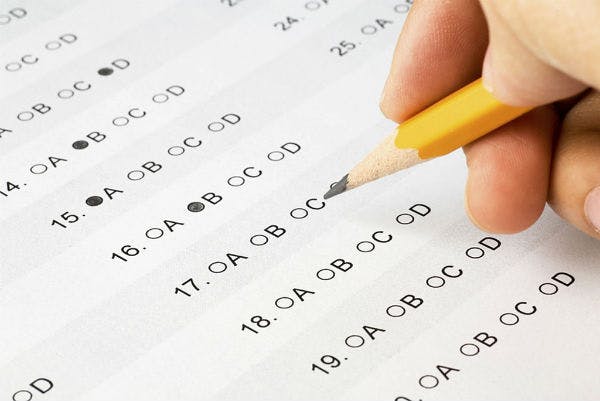
Credit: Alberto G.
It occurs at the end of a unit, chapter, or term and is most commonly associated with final projects, standardized tests, or district benchmarks.
Typically heavily weighted and graded, it evaluates what a student has learned and how much they understand.
There are various types of summative assessment. Here are some common examples of summative assessment in practice:
- End-of-unit test
- End-of-chapter test
- Achievement tests
- Standardized tests
- Final projects or portfolios
Teachers and administrators use the final result to assess student progress, and to evaluate schools and districts. For teachers, this could mean changing how you teach a certain unit or chapter. For administrators, this data could help clarify which programs (if any) require tweaking or removal.
The differences between formative and summative assessment
While we just defined the two, there are five key differences between formative and summative assessments requiring a more in-depth explanation.
Formative assessment:
- Occurs through a chapter or unit
- Improves how students learn
- Covers small content areas
- Monitors how students are learning
- Focuses on the process of student learning
Summative assessment:
- Occurs at the end of a chapter or unit
- Evaluates what students learn
- Covers complete content areas
- Assigns a grade to students' understanding
- Emphasizes the product of student learning
During vs after
Teachers use formative assessment at many points during a unit or chapter to help guide student learning.
Summative assessment comes in after completing a content area to gauge student understanding.
Improving vs evaluating
If anyone knows how much the learning process is a constant work in progress, it’s you! This is why formative assessment is so helpful — it won’t always guarantee students understand concepts, but it will improve how they learn.
Summative assessment, on the other hand, simply evaluates what they’ve learned. In her book, Balanced Assessment: From Formative to Summative, renowned educator Kay Burke writes, “The only feedback comes in the form of a letter grade, percentage grade, pass/fail grade, or label such as ‘exceeds standards’ or ‘needs improvement.’”
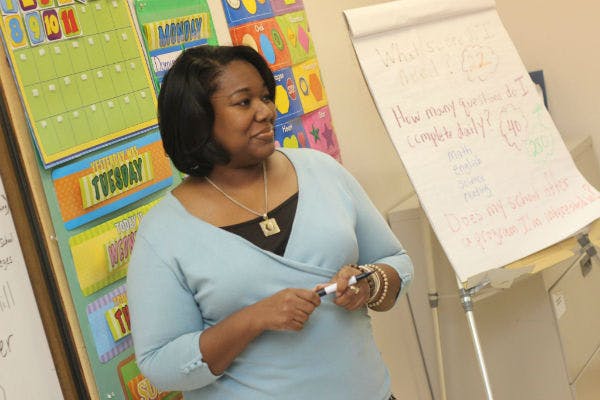
Little vs large
Let’s say chapter one in the math textbook has three subchapters (i.e., 1.1, 1.2 and 1.3). A teacher conducting formative assessments will assign mini tasks or assignments throughout each individual content area.
Whereas, if you’d like an idea of how your class understood the complete chapter, you’d give them a test covering a large content area including all three parts.
Monitoring vs grading
Formative assessment is extremely effective as a means to monitor individual students’ learning styles. It helps catch problems early, giving you more time to address and adapt to different problem areas.
Summative assessments are used to evaluate and grade students’ overall understanding of what you’ve taught. Think report card comments: did students achieve the learning goal(s) you set for them or not?
😮 😄 😂 #reportcard #funny #memes #comics #samecooke #schooldays #music #classic #letsgo #gooutmore #showlove pic.twitter.com/qQ2jen1Z8k — Goldstar Events (@goldstar) January 20, 2019
Process vs product
“It’s not about the destination; it’s about the journey”? This age-old saying sums up formative and summative assessments fairly accurately.
The former focuses on the process of student learning. You’ll use it to identify areas of strength and weakness among your students — and to make necessary changes to accommodate their learning needs.
The latter emphasizes the product of student learning. To discover the product’s “value”, you can ask yourself questions, such as: At the end of an instructional unit, did the student’s grade exceed the class standard, or pass according to a district’s benchmark?
In other words, formative methods are an assessment for learning whereas summative ones are an assessment of learning .
Now that you’ve got a more thorough understanding of these evaluations, let’s dive into the love-hate relationship teachers like yourself may have with summative assessments.
Perceived disadvantages of summative assessment
The pros are plenty. However, before getting to that list, let’s outline some of its perceived cons. Summative assessment may:
1) Offer minimal room for creativity
Rigid and strict assignments or tests can lead to a regurgitation of information. Some students may be able to rewrite facts from one page to another, but others need to understand the “why” before giving an answer.
2) Not accurately reflect learning
“Teaching to the test” refers to educators who dedicate more time teaching lessons that will be emphasized on district-specific tests.
A survey conducted by Harvard’s Carnegie-Knight Task Force on the Future of Journalism asked teachers whether or not “preparing students to pass mandated standardized tests” affects their teaching.
A significant 60% said it either “dictates most of” or “substantially affects” their teaching. While this can result in higher scores, curriculum distortion can prevent students from learning other foundational subject areas.
3) Ignore (and miss) timely learning needs

Because summative assessment occurs at the end of units or terms, teachers can fail to identify and remedy students’ knowledge gaps or misconceptions as they arise.
Unfortunately, by this point, there’s often little or no time to rectify a student’s mark, which can affect them in subsequent units or grades.
4) Result in a lack of motivation
The University of London’s Evidence for Policy and Practice conducted a 19-study systematic review of the impact summative assessment and tests have on students’ motivation for learning.
Contrary to popular belief, researchers found a correlation between students who scored poorly on national curriculum tests and experienced lower self-esteem, and an unwillingness to put more effort into future test prep. Beforehand, interestingly, “there was no correlation between self-esteem and achievement.”
For some students, summative assessment can sometimes be seen as 'high stakes' testing due to the pressure on them to perform well. That said, 'low-stakes' assessments can also be used in the form of quizzes or practice tests.
Repeated practice tests reinforce the low self-image of the lower-achieving students… When test scores are a source or pride and the community, pressure is brought to bear on the school for high scores.
Similarly, parents bring pressure on their children when the result has consequences for attendance at high social status schools. For many students, this increases their anxiety, even though they recognize their parents as being supportive.
5) Be inauthentic
Summative assessment has received criticism for its perceived inaccuracy in providing a full and balanced measure of student learning.
Consider this, for example: Your student, who’s a hands-on, auditory learner, has a math test today. It comes in a traditional paper format as well as a computer program format, which reads the questions aloud for students.
Chances are the student will opt for the latter test format. What’s more, this student’s test results will likely be higher and more accurate.
The reality is that curricula — let alone standardized tests — typically don’t allow for this kind of accommodation. This is the exact reason educators and advocates such as Chuck Hitchcock, Anne Meyer, David Rose, and Richard Jackson believe:
Curriculum matters and ‘fixing’ the one-size-fits-all, inflexible curriculum will occupy both special and general educators well into the future… Students with diverse learning needs are not ‘the problem’; barriers in the curriculum itself are the root of the difficulty.
6) Be biased
Depending on a school district’s demographic, summative assessment — including standardized tests — can present biases if a group of students is unfairly graded based on their race, ethnicity, religion, gender, or social class.
In his presentation at Kansas State University, emeritus professor in the UCLA Graduate School of Education and Information Studies, Dr. W. James Popham, explained summative assessment bias:
This doesn’t necessarily mean that if minority students are outperformed on a summative test by majority students that the test is biased against that minority. It may instead indicate that the minority students have not been provided with the appropriate instruction…
An example of content bias against girls would be one in which students are asked to compare the weights of several objects, including a football. Since girls are less likely to have handled a football, they might find the item more difficult than boys, even though they have mastered the concept measured by the item.
Importance and benefits of summative assessment
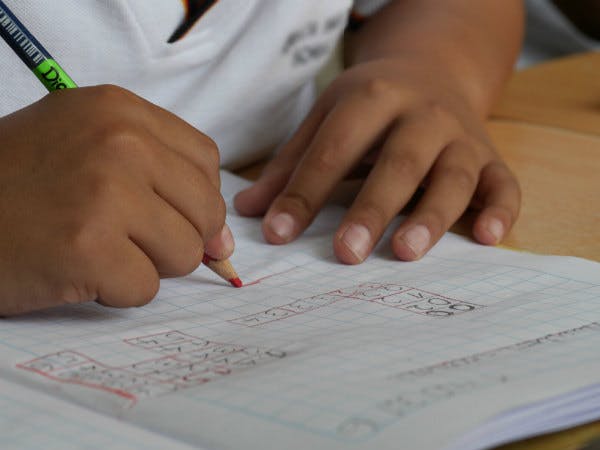
Overall, these are valid points raised against summative assessment. However, it does offer fantastic benefits for teachers and students alike!
Summative assessment can:
1) Motivate students to study and pay closer attention
Although we mentioned lack of motivation above, this isn’t true for every student. In fact, you’ve probably encountered numerous students for whom summative assessments are an incredible source of motivation to put more effort into their studies.
For example, final exams are a common type of summative assessment that students may encounter at the end of a semester or school year. This pivotal moment gives students a milestone to achieve and a chance to demonstrate their knowledge.
In May 2017, the College Board released a statement about whether coaching truly boosts test scores:
Data shows studying for the SAT for 20 hours on free Official SAT Practice on Khan Academy is associated with an average score gain of 115 points, nearly double the average score gain compared to students who don’t use Khan Academy. Out of nearly 250,000 test-takers studied, more than 16,000 gained 200 points or more between the PSAT/NMSQT and SAT…
In addition to the 115-point average score increase associated with 20 hours of practice, shorter practice periods also correlate with meaningful score gains. For example, 6 to 8 hours of practice on Official SAT Practice is associated with an average 90-point increase.
2) Allow students to apply what they’ve learned

It’s one thing to memorize multiplication tables (which is a good skill), but another to apply those skills in math word problems or real-world examples.
Summative assessments — excluding, for example, multiple choice tests — help you see which students can retain and apply what they’ve learned.
3) Help identify gaps in student learning
Before moving on to a new unit, it’s vital to make sure students are keeping up. Naturally, some will be ahead while others will lag behind. In either case, giving them a summative assessment will provide you with a general overview of where your class stands as a whole.
Let’s say your class just wrote a test on multiplication and division. If all students scored high on multiplication but one quarter of students scored low on division, you’ll know to focus more on teaching division to those students moving forward.
4) Help identify possible teaching gaps

Credit: woodleywonderworks
In addition to identifying student learning gaps , summative assessment can help target where your teaching style or lesson plans may have missed the mark.
Have you ever been grading tests before, to your horror, realizing almost none of your students hit the benchmark you hoped for? When this happens, the low grades are not necessarily related to study time.
For example, you may need to adjust your teaching methods by:
- Including/excluding word problems
- Incorporating more visual components
- Innovative summative assessments (we list some below!)
5) Give teachers valuable insights
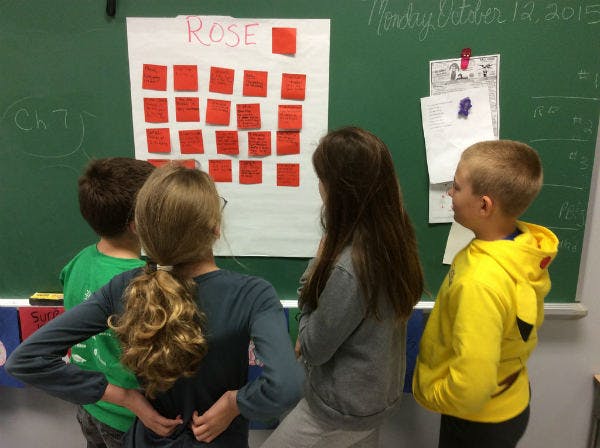
Credit: Kevin Jarrett
Summative assessments can highlight what worked and what didn’t throughout the school year. Once you pinpoint how, where and what lessons need tweaking, making informed adjustments for next year becomes easier.
In this world nothing can be said to be certain, except death and taxes… and, for teachers, new students year after year. So although old students may miss out on changes you’ve made to your lessons, new ones get to reap the benefits.
This not only improves your skills as an educator, but will ensure a more enriching educational experience for generations of students to come.
6) Contribute positively to learning outcomes
Certain summative assessments also provide valuable data at district, national, and global levels. Depending on average test scores, this can determine whether or not certain schools receive funding, programs stay or go, curriculum changes occur, and more. Burke writes:
Summative assessments also provide the public and policymakers with a sense of the results of their investment in education and give educators a forum for proving whether instruction works – or does not work.
The seven aims of summative assessment

Dr. Nancy P. Gallavan, a professor of teacher education at the University of Central Arkansas, believes teachers can use performance-based summative assessments at any grade level.
However, in an article for Corwin , she suggests crafting yours with seven aims in mind:
- Accompanied with appropriate time and task management
- Achievable as in-class activities and out-of-class assignments
- Active involvement in planning, preparation, and performance
- Applicable to academic standards and expectations
- Appropriate to your students’ learning styles, needs, and interests
- Attractive to your students on an individual and group level
- Authentic to curricular content and context
Ideally, the assessment method should also measure a student’s performance accurately against the learning objectives set at the beginning of the course.
Keeping these goals in mind, here’s a list of innovative ways to conduct summative assessments in your classroom!
Summative assessment examples: 9 ways to make test time fun

If you want to switch things up this summative assessment season, keep reading. While you can’t change what’s on standardized tests, you can create activities to ensure your students are exhibiting and applying their understanding and skills to end-of-chapter or -unit assessments. In a refreshing way.
Why not give them the opportunity to express their understanding in ways that apply to different learning styles?
Note : As a general guideline, students should incorporate recognition and recall, logic and reasoning, as well as skills and application that cover major concepts and practices (including content areas you emphasized in your lessons).
1) One, two, three… action!
Write a script and create a short play, movie, or song about a concept or strategy of your choosing.
This video from Science Rap Academy is a great — and advanced — example of students who created a song about how blue-eyed children can come from two brown-eyed parents:
Using a tool such as iPhone Fake Text Generator , have students craft a mock text message conversation conveying a complex concept from the unit, or each chapter of that unit.
Students could create a back-and-forth conversation between two historical figures about a world event, or two friends helping each other with complex math concepts.
Have your students create a five to 10-minute podcast episode about core concepts from each unit. This is an exciting option because it can become an ongoing project.
Individually or in groups, specific students can be in charge of each end-of-chapter or -unit podcast. If your students have a cumulative test towards the end of the year or term, the podcast can even function as a study tool they created together.

Credit : Brad Flickinger
You can use online tools such as Record MP3 Online or Vocaroo to get your class started!
4) Infographic
Creating a detailed infographic for a final project is an effective way for students to reinforce what they’ve learned. They can cover definitions, key facts, statistics, research, how-to info, graphics, etc.
You can even put up the most impressive infographics in your classroom. Over time, you’ll have an arsenal of in-depth, visually-appealing infographics students can use when studying for chapter or unit tests.
5) Compare and contrast
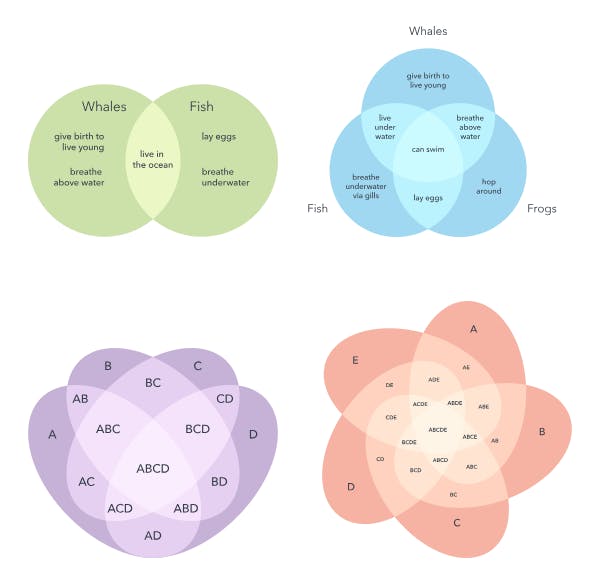
Venn diagrams are an old — yet effective — tool perfect for visualizing just about anything! Whether you teach history or social studies, English or math, or something in between, Venn diagrams can help certain learners visualize the relationship between different things.
For example, they can compare book characters, locations around the world, scientific concepts, and more just like the examples below:
6) Living museum
This creative summative assessment is similar to one, two, three… action! Individuals will plan and prepare an exhibit (concept) in the Living Museum (classroom). Let’s say the unit your class just completed covered five core concepts.
Five students will set up around the classroom while the teacher walks from exhibit to exhibit. Upon reaching the first student, the teacher will push an imaginary button, bringing the exhibit “to life.” The student will do a two to three-minute presentation; afterwards, the teacher will move on to the next one.
7) Ed-Tech games
Now more than ever, students are growing up saturated with smartphones, tablets, and video games. That’s why educators should show students how to use technology in the classroom effectively and productively.
More and more educators are bringing digital tools into the learning process. Pew Research Center surveyed 2,462 teachers and reported that digital technologies have helped in teaching their middle and high school students.
Some of the findings were quite eye-opening:
- 80% report using the internet at least weekly to help them create lesson plans
- 84% report using the internet at least weekly to find content that will engage students
- 69% say the internet has a “major impact on their ability to share ideas with other teachers
- 80% report getting email alerts or updates at least weekly that allow them to follow developments in their field
- 92% say the internet has a “major impact” on their ability to access content, resources, and materials for their teaching
- 67% say the internet has a “major impact” on their ability to interact with parents and 57% say it has had such an impact on enabling their interaction with students
To make the most of EdTech, find a tool that actually engages your students in learning and gives you the insightful data and reports you need to adjust your instruction
Tip: Teaching math from 1st to 8th grade? Use Prodigy!
With Prodigy Math, you can:
- Deliver engaging assessments: Prodigy's game-based approach makes assessments fun for students.
- Spot and solve learning gaps: See which students need more support at the touch of a button.
- Reduce test anxiety: Prodigy has been shown to build math confidence.
Plus, it's all available to educators at no cost. See how it works below! 👇
8) Shark Tank/Dragon’s Den
Yes, just like the reality TV show! You can show an episode or two to your class or get them to watch the show at home. Next, have students pitch a product or invention that can help change the world outside of school for the better.
This innovative summative assessment is one that’ll definitely require some more thought and creativity. But it’s important that, as educators, we help students realize they can have a huge positive impact on the world in which they live.
9) Free choice
If a student chooses to come up with their own summative assessment, you’ll need to vet it first. It’ll likely take some collaboration to arrive at something sufficient.
However, giving students the freedom to explore content areas that interest them most could surprise you. Sometimes, it’s during those projects they form a newfound passion and are wildly successful in completing the task.

We’re sure there are countless other innovative summative assessment ideas out there, but we hope this list gets your creative juices flowing.
With the exclusion of standardized state and national tests, one of the greatest misconceptions about summative assessments is that they’re all about paper and pencil. Our hope in creating this list was to help you see how fun and engaging summative assessments can truly be.
10) Group projects
Group projects aren't just a fun way to break the monotony, but a dynamic and interactive form of summative assessment. Here's why:
- Collaborative learning: Group projects encourage students to work as a team, fostering their communication and collaboration skills. They learn to listen, negotiate, and empathize, which are crucial skills in and beyond the classroom.
- Promotes critical thinking: When students interact with each other, they get to explore different perspectives. They challenge each other's understanding, leading to stimulating debates and problem-solving sessions that boost critical thinking.
- In-depth assessment: Group projects offer teachers a unique lens to evaluate both individual performances and group dynamics. It's like getting a sneak peek into their world - you get to see how they perform under different circumstances and how they interact with each other.
- Catering to different learning styles: Given the interactive nature of group projects, they can cater to different learning styles - auditory, visual, and kinesthetic. Every student gets a chance to shine!
However, it's important to set clear instructions and criteria to ensure fairness. Remember, it's not just about the final product - it's about the process too.
Some interesting examples of group projects include:
- Create a Mini Documentary: Students could work together to research a historical event and create a mini documentary presenting their findings.
- Plan a Community Service Project: This could involve identifying a problem in the local community and creating a detailed plan to address it.
- Design a Mobile App: For a more tech-focused project, students could identify a problem and design an app that solves it.
Summative assessment strategies for keeping tests clear and fair

In addition to using the summative assessment examples above to accommodate your students’ learning styles, these tips and strategies should also help:
- Use a rubric — Rubrics help set a standard for how your class should perform on a test or assignment. They outline test length, how in-depth it will be, and what you require of them to achieve the highest possible grades.
- Design clear, effective questions — When designing tests, do your best to use language, phrases, and examples similar to those used during lessons. This’ll help keep your tests aligned with the material you’ve covered.
- Try blind grading — Most teachers prefer knowing whose tests they’re grading. But if you want to provide wholly unbiased grades and feedback, try blind grading. You can request your students write their names on the bottom of the last test page or the back.
- Assess comprehensiveness — Make sure the broad, overarching connections you’re hoping students can make are reasonable and fluid. For example, if the test covers measurement, geometry and spatial sense, you should avoid including questions about patterning and algebra.
- Create a final test after, not before, teaching the lessons — Don’t put the horse before the carriage. Plans can change and student learning can demand different emphases from year to year. If you have a test outline, perfect! But expect to embrace and make some changes from time to time.
- Make it real-world relevant — How many times have you heard students ask, “When am I going to use this in real life?” Far too often students assume math, for example, is irrelevant to their lives and write it off as a subject they don’t need. When crafting test questions, use culturally-relevant word problems to illustrate a subject’s true relevance.
Enter the Balanced Assessment Model
Throughout your teaching career, you’ll spend a lot of time with formative and summative assessments. While some teachers emphasize one over the other, it’s vital to recognize the extent to which they’re interconnected.
In the book Classroom Assessment for Student Learning , Richard Stiggins, one of the first educators to advocate for the concept of assessment for learning, proposes something called “a balanced assessment system that takes advantage of assessment of learning and assessment for learning.”
If you use both effectively, they inform one another and “assessment becomes more than just an index of school success. It also serves as the cause of that success.”
In fact, Stiggins argues teachers should view these two types of assessment as “in sync.”
They can even be the exact same thing — only the purpose and the timing of the assessment determine its label. Formative assessments provide the training wheels that allow students to practice and gain confidence while riding their bikes around the enclosed school parking lot.
Once the training wheels come off, the students face their summative assessment as they ride off into the sunset on only two wheels, prepared to navigate the twists and turns of the road to arrive safely at their final destination.
Conclusion: Going beyond the test
Implementing these innovative summative assessment examples should engage your students in new and exciting ways.
What’s more, they’ll have the opportunity to express and apply what they’ve learned in creative ways that solidify student learning.
So, what do you think — are you ready to try out these summative assessment ideas? Prodigy is a game-based learning platform teachers use to keep their students engaged.
Sign up for a free teacher account and set an Assessment today!

IMAGES
VIDEO
COMMENTS
Summative essays are used to test the results of learning and knowledge over time and are usually criterion-referenced. A summative essay is a comprehensive piece of writing and will need quite a lot of class time to revise, complete, instruct, edit and draft. This is not a type of assignment that can be revised or improved by students after ...
Five Summative Test Scenarios 1. Performance-Based Summative Assessment. A traditional form of summative assessment usually involves a lot of multiple-choice and short essay questions. But it doesn't have to be that way at all. Performance-based tests that involve authentic assessment can also be summative.
Summative assessment does not test students on what they have not been taught. Summative assessment aligns with the learning goals and objectives of the course. ... Formal Essays; Formal essays allow students to demonstrate their level of knowledge about a subject matter. Essay writing is a useful skill that communicates one's idea and ...
In short, formative assessment occurs throughout a class or course, and seeks to improve student achievement of learning objectives through approaches that can support specific student needs (Theal and Franklin, 2010, p. 151). In contrast, summative assessments evaluate student learning, knowledge, proficiency, or success at the conclusion of ...
The definition of summative assessment is any method of evaluation performed at the end of a unit that allows a teacher to measure a student's understanding, typically against standardized ...
When they have finished their units, teachers offer a summative—or cumulative—test, project, or essay to determine if students have reached the key learning targets. If a student does not reach a predetermined score (80%, according to most mastery learning models), teachers adjust what content comes next and often provide strategic ...
Have a strong introduction. 3. Include a thesis statement and provide a brief outline of the essay's structure. 4. Ensure each paragraph has a main idea or topic sentence that identifies the central message. 5. Proofread your work. Most students struggle to write a good essay. It's even more difficult for them to write an excellent summative ...
Essays are another common type of summative assessment and usually require students to write about a topic or answer a question in depth. ... For example, a multiple-choice test may not be the best option if you are assessing students' understanding of a concept. 3. Make sure the assessment items are clear and concise.
Summative assessment is a specific type of assessment that evaluates learning and offers little opportunity for providing student feedback because of its positioning at the end of a learning unit. They are usually high-stakes, contributing to a large portion of a student's course grade (e.g., final exams) or an exam that has a high impact on ...
6 summative assessment examples Some examples of summative assessments you can introduce into your classroom include: 1. Final exam A final exam is a test teachers give at the end of a course. Often presented in a combined multiple-choice and essay format, it covers all of the important topics the students studied during the year or semester.
Academy for Teaching and Learning. Moody Library, Suite 201. One Bear Place. Box 97189. Waco, TX 76798-7189. [email protected]. (254) 710-4064. In contrast to formative assessment, summative assessment evaluates a student's knowledge of material at a given point in time in relation to previously determined learning goals.
Summative feedback can also influence how students regard themselves and their academic disciplines after graduation. Use rubrics to provide consistency and transparency. A rubric is a grading guide for evaluating how well students have met a learning outcome. A rubric consists of performance criteria, a rating scale, and indicators for the ...
Prompts About Summative Assessments: Essay Prompt 1: ... A summative assessment is a test given at the conclusion of a period of learning to assess progress based on a benchmark or standard ...
The goal of summative assessment is to evaluate student learning at the end of an instructional unit by comparing it against some standard or benchmark. Summative assessments are often high stakes, which means that they have a high point value. Examples of summative assessments include: a midterm exam. a final project. a paper. a senior recital.
Generally speaking, summative assessments are defined by three major criteria: The tests, assignments, or projects are used to determine whether students have learned what they were expected to learn. In other words, what makes an assessment "summative" is not the design of the test, assignment, or self-evaluation, per se, but the way it is ...
Summative evaluation judges the worth, or value, of an educational unit of study at its conclusion. Summative assessments also serve the purpose of evaluating student learning. In schools, these assessments can be in a variety of formats: traditional written tests, essays, presentations, discussions, or reports using other formats.
A summative essay can be written about almost any topic. It can be based on a book, a speech, an article, or other reading material. To report a good summary essay, you must read the material carefully, take notes, and think about what the author is trying to say. Then, you should organize your notes and use them to write a summary.
The goal of summative assessment is to evaluate student learning at the end of an instructional unit by comparing it against some standard or benchmark. Summative assessments often have high stakes and are treated by the students as the priority over formative assessments. ... An example of such assessment is producing an essay plan, a ...
Summative assessments test student mastery of content, assess their overall understanding of a subject or topic area and generally give them a final mark. ... Term papers and essays. Essays and term papers are another traditional assessment method used alongside examinations. Essays test students' ability to analyse a given topic or concept ...
Summative assessment examples: 9 ways to make test time fun. If you want to switch things up this summative assessment season, keep reading. While you can't change what's on standardized tests, you can create activities to ensure your students are exhibiting and applying their understanding and skills to end-of-chapter or -unit assessments.
The Geography of Travel and Tourism - Summative Assignment Pages: 6 (1598 words) A Classroom-Based Action Research on Promoting Confidence in an ESL Classroom Pages: 9 (2534 words) Formative Assessment: raising standards inside the classroom Pages: 2 (590 words) Pages: 2 (535 words)
This document contains a 15-question summative test on English for Academic and Professional Purposes (EAPP). The test assesses knowledge of key concepts in academic writing such as the purposes of academic writing, components of an essay, how to write a reaction paper, citing sources, academic approaches like formalism, and writing concept papers. It requires students to choose the best ...
A. The sentence that is the main idea of an essay. B. The sentence that ends the paper. C. It is the restated thesis in an essay. Strictly NO. D. A sentence that gets the reader's attention. 17. What do you call the statistics, expert opinion, research findings and anecdotes that you are going to include in your persuasive essay? A.